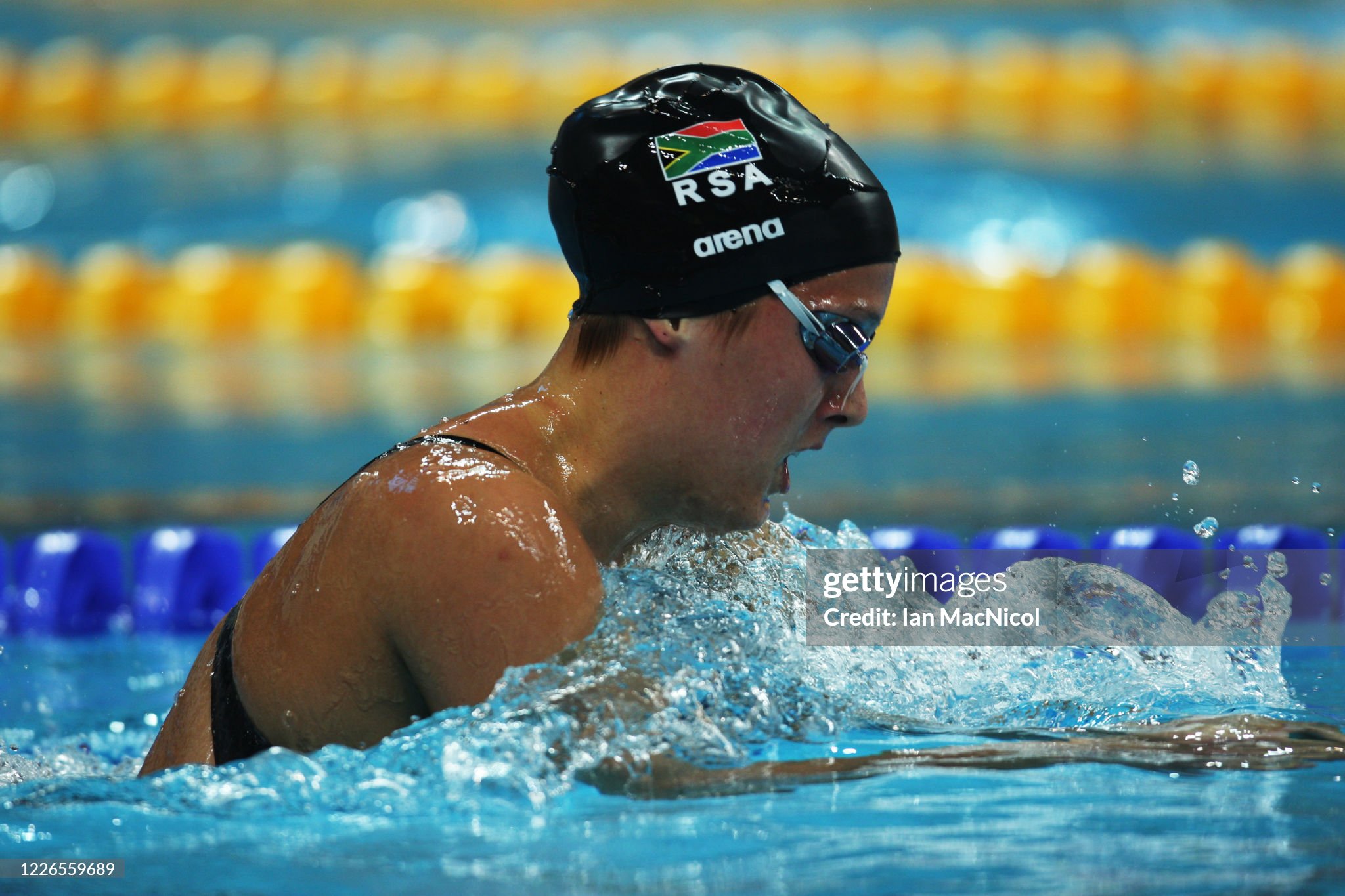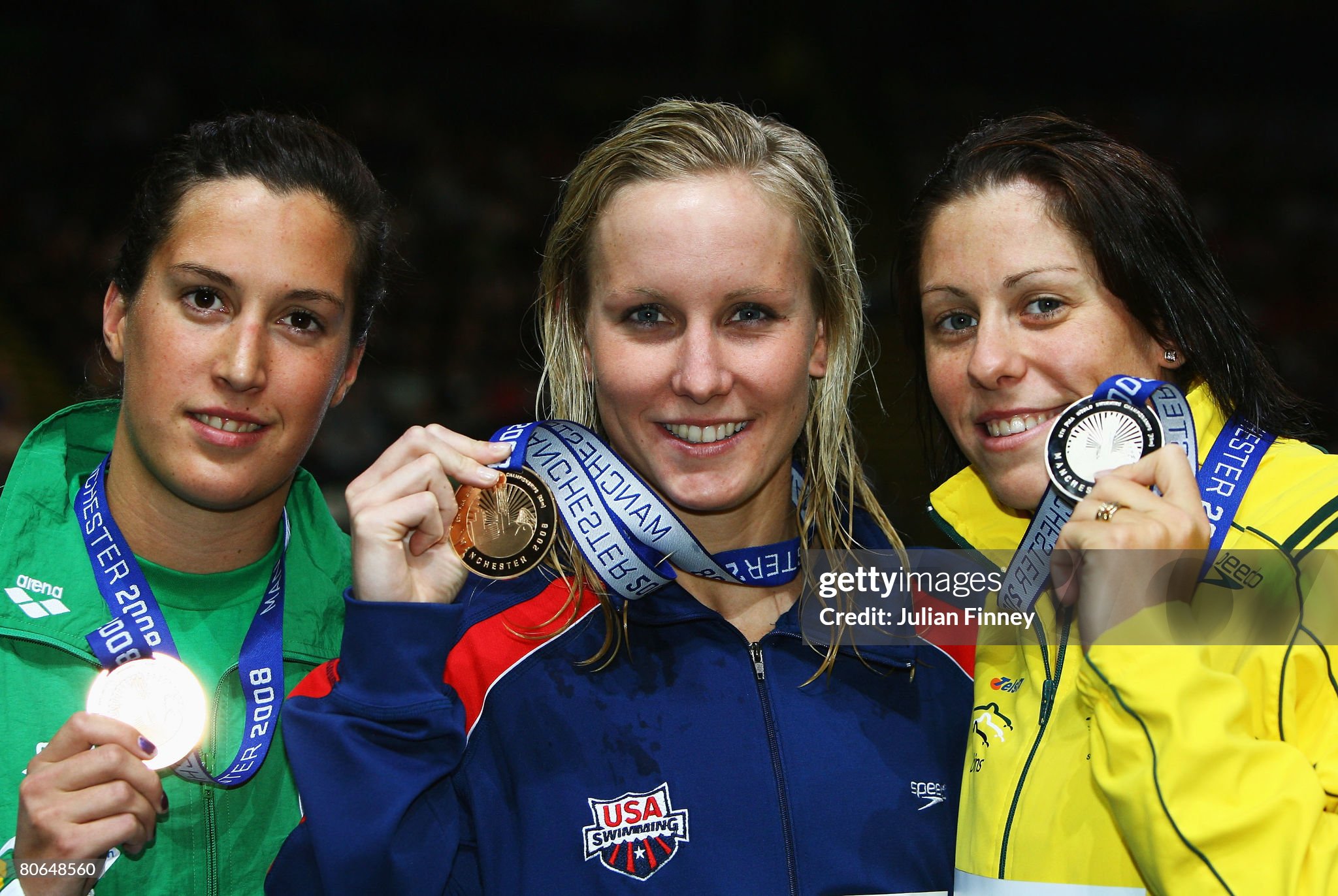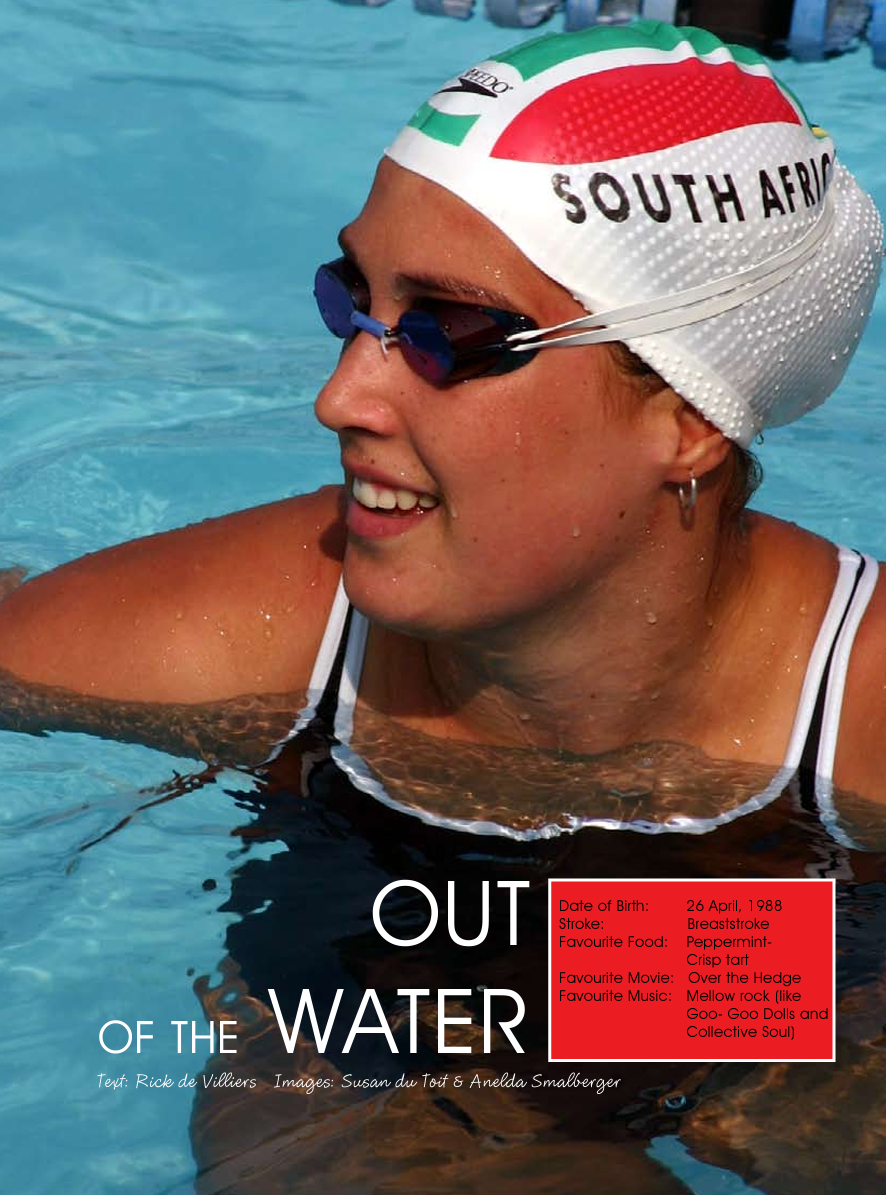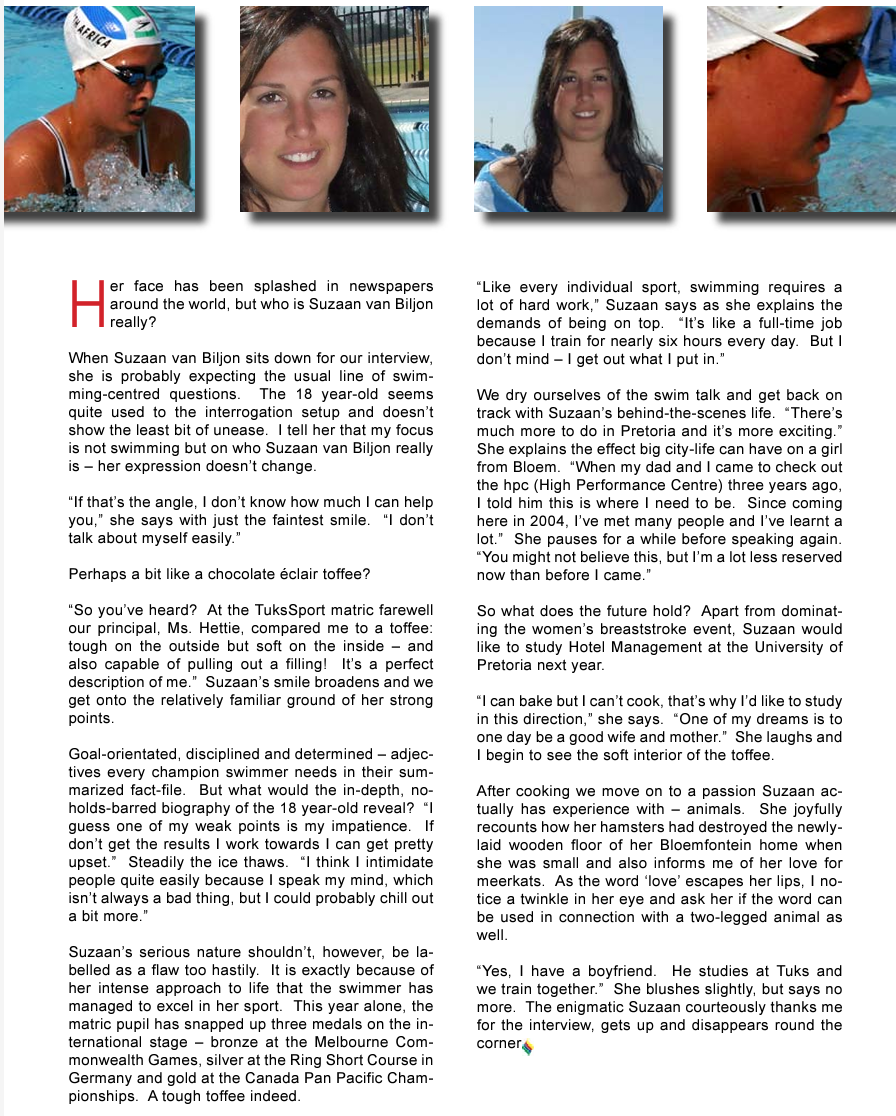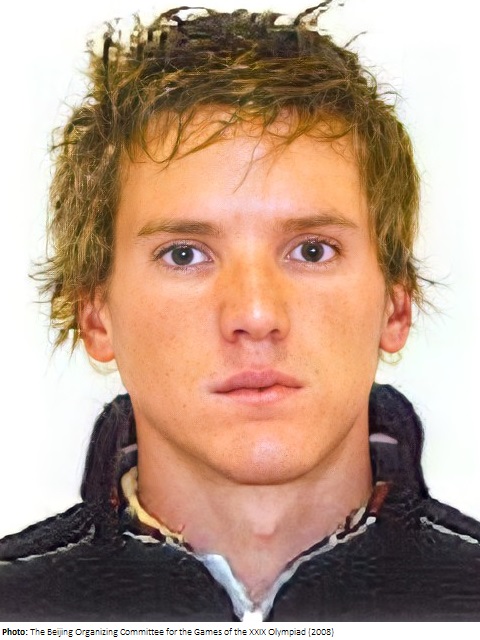2021
This was a big year for Tatjana. She won the 200m breaststroke, in a new world record time, at the Tokyo Olympic Games. She also won a silver medal in the 100m event.
Olympic Games - Tokyo
 TOKYO, July 30, 2021 – Five years ago South African swimmer Tatjana Schoenmaker experienced a “big fall” and cried after failing to qualify for the Rio 2016 Olympic Games by one-hundredth of a second. The hurt was such that a 19-year-old Schoenmaker had to “start learning to love the sport again”.
TOKYO, July 30, 2021 – Five years ago South African swimmer Tatjana Schoenmaker experienced a “big fall” and cried after failing to qualify for the Rio 2016 Olympic Games by one-hundredth of a second. The hurt was such that a 19-year-old Schoenmaker had to “start learning to love the sport again”.
Breaststroke Brilliance by Tatjana Schoenmaker is Swimming World Female World Record of the Year
Nothing surrounding the Tokyo Olympics felt inevitable, but Tatjana Schoenmaker came close. By the seventh day of competition, the South African breaststroker had done quite a bit of work.
She’d tallied the Olympic record in prelims of the women’s 100 breast, quicker than Lydia Jacoby’s gold-winning time in a final in which Schoenmaker took silver. She’d also used her prelims heat in the 200 breast to down the Olympic mark in that event.
So with time draining out of the pandemic-impacted Games, if ever a world record was going to fall on the individual side, it just had to be Schoenmaker doing the rewriting, no?
Schoenmaker’s answer was an emphatic affirmative on the morning of July 30 at the Tokyo Aquatics Center. After getting a surprise pulled on her in the 100, she had no intention of sticking around long enough for anyone in the 200 breast final to do the same. The result was an authoritative swim from start to finish, a time of 2:18.95, and the first (and only) women’s world record set at the Tokyo Olympics.
Schoenmaker executed her race plan to perfection – so much so that an outstanding race by Lilly King resulted in the silver medal by a margin of nearly a second. Confident in her speed from her performance in the 100, she went out fast in 1:07.06, well ahead of King, whose only hope was to daze Schoenmaker with her opening 100 meters and hang on.
A 200 breaststroker by specialty, Schoenmaker knew she had the legs coming home. She split identical 35.42s on the middle 50s and roared home with gold secured and only the world record to sort out.
In prelims, she’d taken down the nine-year-old Olympic mark set by Rebecca Soni in London, slicing .43 off the record in 2:19.16. She was under Soni’s old mark with a 2:19.33 to set the pace in the semifinals.
All that stood before her was the 2:19.11 set by Denmark’s Rikke Moller Pedersen in 2013, the oldest textile-suit individual record on the books in women’s swimming, and the third-oldest overall with two enduring super-suit marks from 2009.
The shock on Schoenmaker’s face when she hit the wall and saw the 2:18 – from a nation that had gone 21 years between female Olympic swimming medals, from a swimmer who wanted nothing more upon arrival in Tokyo then a lane and a chance in the final of her preferred event – told the tale.
“I would’ve never even thought, because it’s my first Olympics,” she said. “For me to get a lane in the final, then everyone stands a chance, that’s the thing I’ve always been after. This has exceeded all my expectations, so I couldn’t be happier.”
https://www.swimmingworldmagazine.com/news/breaststroke-brilliance-by-tatjana-schoenmaker-is-swimming-world-female-world-record-of-the-year/
2016
Come hell or cold, Tatjana dreams Rio
Tatjana Schoenmaker has to repeat a qualifying time
6 Mar 2016
Tatjana Schoenmaker this week got an untimely reminder of the icy training hell that awaits her this winter.
Thanks to a temperamental pump at the outdoor Tuks pool in Pretoria, the water was a tad chilly, but nothing compared to what she will face in late May.
“Ohhhh, it’s so cold,” said the first-year financial sciences student, almost shivering at the memory of the near-zero air temperatures that accosted her last year and the years before.
“We always have to take off the covers wearing gloves, and then you have to take off your clothes and get in the water.
“That’s when you feel swimming isn’t such a good idea,” smiled Schoenmaker, who is on track to make the SA Olympic team for the 2016 Rio Games in August.
There’s not much sympathy to be had from Russian coach Igor Omeltchenko.
“He tells us how he used to cut ice off the top of the water to create lanes so he could swim,” said Schoenmaker, who has no Russian links despite her first name.
If Schoenmaker qualifies for the Olympics, she will depart with the SA team to Europe and the Americas on a lengthy preparation camp from early June. To make the team, all SA swimmers must achieve qualifying times at the national championships, which also serve as the Olympic trials, in Durban in April.
Schoenmaker clocked a 2min 26.50sec qualifying time in the 200m breaststroke in Stellenbosch last weekend; she can surely do it again next month. “I did the time in hard training. I’ll be more rested at nationals.”
So far she is the only female swimmer to bag a 2016 qualifying time, hopefully allaying fears that South Africa could deliver an all-male senior swimming team for the second year in a row.
“It’s unfair for people to assume there’ll be no girls in Rio. Karin [Prinsloo] and Vanessa [Mohr] got qualifying times for London 2012. All three of us just want to get there.”
She dismisses the theory that women don’t like to risk their femininity amid the tough slog of training. “We really work hard. We don’t take it easy, it’s not like we back off.”
SA has produced several breaststroke stars over the years, notably Penny Heyns, Terence Parkin, and most recently Cameron van der Burgh, but Schoenmaker was already in her chosen stroke by the time she’d heard of them.
She wasn’t even born when Heyns won the Olympic breaststroke double at Atlanta in 1996.
Schoenmaker, 18, took a shine to swimming from an early age. “I also did athletics and my parents told me to run slower in a race so I didn’t make the team because it would have clashed with swimming.”
She is still working out the best way to finesse studying alongside training up to five hours a day, which includes some stretching exercises with a Russian ballet teacher organised by Omeltchenko.
“I don’t want to sacrifice the Olympics and I don’t want to sacrifice studying.”
Qualifying for the Rio-bound team will transform that into an easier choice.
We work hard. We don’t take it easy, it’s not like we back off
2015
Tatjana in the uniform of the TUKSSports High School. In this year she won the 50m, 100m and 200m bresaststroke events at the 11th African Games took place from September 4–19, 2015 in Brazzaville, Republic of the Congo.
Tatjana Schoenmaker shines at SA Nationals
21 April 2015
Tatjana Schoenmaker, grade 12 learner at TuksSport High School won the 200m breaststroke in 2:29.23 and was second in the 50m breaststroke in 32.45s. She was also part of the team that won the 4x100 relay in 4:12.04.
Young local swimmer disappointed despite three gold medals
24 April 2015
Despite the fact that she did very well at the national championships, Tatjana Schoenmaker is still disappointed that she could not qualify for the world championships.
Any swimmer who could win three gold and one silver medal at the South African Senior Swimming Championships in Durban should be well satisfied with such a performance.
It is not as if Tatjana Schoenmaker (TuksSport High School) is unhappy with her performance, but she is disappointed that she was unable to qualify for the Fina World Championships in Kazan, Russia.
“My winning times were basically the same as last year. I really would have loved to finish with faster times.”
The closest Schoenmaker came to qualifying was in the 100m breaststroke where her winning time of 1:08.85 was merely a second slower than the expected qualification time of 1:07.88. It should be mentioned that Swimming South Africa has set their own qualification standards according to which swimmers are expected to swim faster times than the qualifying standards set by Fina.
Schoenmaker won the 200m breaststroke in 2:29.23 and was second in the 50m breaststroke in 32.45s. She was also part of the team that won the 4×100 relay in 4:12.04.
The fact that only five swimmers, namely Myles Brown, Cameron van der Burgh, Ayrton Sweeney, Chad le Clos and Sebastien Rousseau (all male), were able to meet the standards set by Swimming South Africa, is slightly worrisome.
According to Schoenmaker, the water in the pool felt slightly cooler than previous years. “I am not sure whether the cold water could have influenced our times,” she said.
Schoenmaker still hopes to be selected for the South African Swimming team that will compete at the Junior World Championships and the Junior Commonwealth Games.
Rocco Meiring, who coached Schoenmaker last year when she broke the South African junior records in the 100m and 200m breaststroke, emphasized that a young swimmer like her should be allowed to reach her full potential as a swimmer in her own time.
“South African swimming has a sad history of trying to fast-track talented young female swimmers to compete at the Olympic Games or a senior World Championships. Unfortunately this has led to a number of swimmers quitting before they fulfilled their potential,” Meiring explained. He predicts that Schoenmaker will be at her best during the 2020 Games.
Schoenmaker said she did not have any role models. “I don’t strive to be like any other swimmer. I am my own person and I want to make my own way into the international swimming arena.”
https://rekordcenturion.co.za/44821/young-local-swimmer-disappointed-despite-three-gold-medals/





2022

SA Championships - Port Elizabeth
At nationals held at the Newton Park pool in Port Elizabeth in April 2022, Tatjana was beaten in the 50 and 100m breaststroke events by fellow Pretoria and NTS swimmer Lara van Niekerk. Tatjana won the 200m, achieving world championship qualifying times in the 50, 100, and 200m breaststroke events.
In July 2022 they will be competing in the Commonwealth Games, to be held in Birmingham.
Results to come!
2021 - Olympic Games - Tokyo
 TOKYO, July 30, 2021 – Five years ago South African swimmer Tatjana Schoenmaker experienced a “big fall” and cried after failing to qualify for the Rio 2016 Olympic Games by one-hundredth of a second. The hurt was such that a 19-year-old Schoenmaker had to “start learning to love the sport again”.
TOKYO, July 30, 2021 – Five years ago South African swimmer Tatjana Schoenmaker experienced a “big fall” and cried after failing to qualify for the Rio 2016 Olympic Games by one-hundredth of a second. The hurt was such that a 19-year-old Schoenmaker had to “start learning to love the sport again”.
Breaststroke Brilliance by Tatjana Schoenmaker is Swimming World Female World Record of the Year
Nothing surrounding the Tokyo Olympics felt inevitable, but Tatjana Schoenmaker came close. By the seventh day of competition, the South African breaststroker had done quite a bit of work.
She’d tallied the Olympic record in prelims of the women’s 100 breast, quicker than Lydia Jacoby’s gold-winning time in a final in which Schoenmaker took silver. She’d also used her prelims heat in the 200 breast to down the Olympic mark in that event.
So with time draining out of the pandemic-impacted Games, if ever a world record was going to fall on the individual side, it just had to be Schoenmaker doing the rewriting, no?
Schoenmaker’s answer was an emphatic affirmative on the morning of July 30 at the Tokyo Aquatics Center. After getting a surprise pulled on her in the 100, she had no intention of sticking around long enough for anyone in the 200 breast final to do the same. The result was an authoritative swim from start to finish, a time of 2:18.95, and the first (and only) women’s world record set at the Tokyo Olympics.
Schoenmaker executed her race plan to perfection – so much so that an outstanding race by Lilly King resulted in the silver medal by a margin of nearly a second. Confident in her speed from her performance in the 100, she went out fast in 1:07.06, well ahead of King, whose only hope was to daze Schoenmaker with her opening 100 meters and hang on.
A 200 breaststroker by specialty, Schoenmaker knew she had the legs coming home. She split identical 35.42s on the middle 50s and roared home with gold secured and only the world record to sort out.
In prelims, she’d taken down the nine-year-old Olympic mark set by Rebecca Soni in London, slicing .43 off the record in 2:19.16. She was under Soni’s old mark with a 2:19.33 to set the pace in the semifinals.
All that stood before her was the 2:19.11 set by Denmark’s Rikke Moller Pedersen in 2013, the oldest textile-suit individual record on the books in women’s swimming, and the third-oldest overall with two enduring super-suit marks from 2009.
The shock on Schoenmaker’s face when she hit the wall and saw the 2:18 – from a nation that had gone 21 years between female Olympic swimming medals, from a swimmer who wanted nothing more upon arrival in Tokyo then a lane and a chance in the final of her preferred event – told the tale.
“I would’ve never even thought, because it’s my first Olympics,” she said. “For me to get a lane in the final, then everyone stands a chance, that’s the thing I’ve always been after. This has exceeded all my expectations, so I couldn’t be happier.”
https://www.swimmingworldmagazine.com/news/breaststroke-brilliance-by-tatjana-schoenmaker-is-swimming-world-female-world-record-of-the-year/

Coach Rocco Meiring with Tatjana Schoenmaker

 2020 Regional Short-Course Championships - Pretoria
2020 Regional Short-Course Championships - Pretoria

SA Swimmer Tatjana Schoenmaker Breaks 12-Year National Record
Tatjana Schoenmaker has broken the 12-year-old short-course South African record in the 200m breaststroke. Schoenmaker accomplished the feat at the Regional Short-Course Championships in Pretoria. She finished in 2min 18.20sec to lower the mark set by Suzaan van Biljon in 2008 of 2:18.73.
Schoenmaker’s time would have placed her fifth in the 2019 world rankings, and the swim moved her up to 20th on the all-time list. Her previous best was a 2:18.93 at the 2018 South African short-course championships.
Last year, she became the first South African female to win a medal at the World Championships when she won a silver in the 200m breaststroke. In the 100m breaststroke, she finished sixth. She also won the 100m and 200m breaststroke gold medals at the 2019 World University Games.
At the 2018 Commonwealth Games, Schoenmaker also cleaned up in the breaststroke events, with the Gold Coast Games really announcing her arrival on the big stage.
https://www.sapeople.com/2020/09/26/sa-swimmer-tatjana-schoenmaker-breaks-12-year-national-record/
2019 - Summer Universiade - Naples
4-10 July 2019

Golden Schoenmaker becomes the most-decorated South African Universiade swimmer
It was a night of double South African gold with victory for Tayla Lovemore in the 100 metres butterfly coming less than an hour after Tatjana Schoenmaker took gold in the 200m breaststroke, making her the most successful South African swimmer in Universiade history.
Schoenmaker, who won two gold medals at the 2018 Gold Coast Commonwealth Games, is set to to jet to Gwangju in South Korea for the International Swimming Federation World Swimming Championships in a few weeks.
"I just wanted to swim a good time," she said.
"I’m going to the World Championships so I just wanted to see where I am at the moment and I’m in a really good place.
"It's good, I set those records at Commonwealths.
"Those times were really fast so I never thought I’d swim a 2:22 again, that’s why I am super happy."
Schoenmaker won the 100m breaststroke title earlier in the week to go with her 100m breaststroke silver medal from the 2017 Summer Universiade in Taipei and said she had not planned to peak in Naples.
"It was surprisingly very good compared to what we thought I would be swimming," she said.
"I did not expect to swim these times at all, so going to a World Championships it boosts your confidence a little knowing where you are now.
"Hopefully, I can keep it up and can know if I don’t, I am just there for the experience.
"That’s all I want to get out of it."

2019 - FINA Long Course World Championships - Gwangju
26 July 2019

After coming close in the 100, 22-year-old Tatjana Schoenmaker became the first South African woman in history to win a medal at the Long Course World Championships on day six in Gwangju, claiming silver in the women’s 200 breaststroke.
Coming off back-to-back 100 and 200 breast sweeps at the 2018 Commonwealth and 2019 World University Games, she swam to a new Continental Record in the 200 semis in a time of 2:21.79, and then clocked 2:22.52 in the final to place second behind Yuliya Efimova (2:20.12).
Schoenmaker joins Kirsty Coventry of Zimbabwe and Farida Osman of Egypt as the only female African medalists at LC Worlds. Coventry was an eight-time medalist over three Championships from 2005 to 2009, while Osman was the bronze medalist in the 50 fly two years ago in Budapest.
2018 - Commonwealth Games - Brisbane
Schoenmaker smashes Penny Heyns' record at Commonwealth Games
South African swimmer Tatjana Schoenmaker broke swimming legend Penny Heyns’ 1999 100m breaststroke African record, claiming the gold medal in a fast time of 1:06.41.
Tatjana Schoenmaker smashes African record, wins 200 breast gold
09 April 2018
In the Commonwealth final of the women’s 200 breaststroke, South Africa’s Tatjana Schoenmaker took over on the third 50 and pulled away to dominate the field. She came in to win the event in 2:22.02, moving all the way up to 18th all-time in the event. Schoenmaker broke the African record of 2:23.21 set by countrywoman Suzaan van Biljon in 2012.
This is her second African record of the competition, lowering the mark in the 50 breast earlier when she placed 4th in 30.82.
Schoenmaker has steadily been on the rise, impressively winning silver at last summer’s World University Games in a time of 2:24.61. That stood as her personal best until the prelims, where she took the top seed into the final at 2:23.57.


2017 - Universiade in Taipei
Schoenmaker swims to SA’s first medal in Taiwan
August 25, 2017
A tough few days of competition at the 29th Summer Universiade in Taipei, Taiwan, had a silver lining as Tuks student Tatjana Schoenmaker bagged the first medal for Team South Africa in the women’s 200-metre breaststroke final.
The silver medallist’s competition schedule started earlier this week when she went for glory in the women’s 100-metre breaststroke event, and after finishing top two in both her qualifying heat and semi-final round, where she swam a time of 1min 07.77sec, she was beaten into fourth with a time of 1:07.44.
Schoenmaker then had a score to settle in the 200m breaststroke event, and she yet again qualified for the semi-final with the second-fastest time.
Two day earlier Japanese swimmer Kanako Watanabe narrowly edged out Schoenmaker in the final with a time of 2:24.15 as Schoenmaker finished in a time of 2:24.61 to claim the first 29th Summer Universiade medal for Team South Africa.
Schoenmaker made the final of the women's 100-metre breaststroke, where the Tuks University swimmer placed fourth. Her time of 1min 07.44sec was 0.59sec off winner Kanako Watanabe's 1:06.85 and 0.46sec shy of a bronze medal. It was the second time Schoenmaker (featured in the latest issue of the Team SA magazine) had improved on her personal best time, having swum 1:07.77 in the semi-finals.
Earlier this year, Schoenmaker had become the first South African woman in three years to qualify for a major international championship, this in the Fina World Championships that took place in Budapest last month, but she opted to concentrate instead on the World Student Games.



Come hell or cold, Tatjana dreams Rio
Tatjana Schoenmaker has to repeat a qualifying time
6 Mar 2016
Tatjana Schoenmaker this week got an untimely reminder of the icy training hell that awaits her this winter.
Thanks to a temperamental pump at the outdoor Tuks pool in Pretoria, the water was a tad chilly, but nothing compared to what she will face in late May.
“Ohhhh, it’s so cold,” said the first-year financial sciences student, almost shivering at the memory of the near-zero air temperatures that accosted her last year and the years before.
“We always have to take off the covers wearing gloves, and then you have to take off your clothes and get in the water.
“That’s when you feel swimming isn’t such a good idea,” smiled Schoenmaker, who is on track to make the SA Olympic team for the 2016 Rio Games in August.
There’s not much sympathy to be had from Russian coach Igor Omeltchenko.
“He tells us how he used to cut ice off the top of the water to create lanes so he could swim,” said Schoenmaker, who has no Russian links despite her first name.
If Schoenmaker qualifies for the Olympics, she will depart with the SA team to Europe and the Americas on a lengthy preparation camp from early June. To make the team, all SA swimmers must achieve qualifying times at the national championships, which also serve as the Olympic trials, in Durban in April.
Schoenmaker clocked a 2min 26.50sec qualifying time in the 200m breaststroke in Stellenbosch last weekend; she can surely do it again next month. “I did the time in hard training. I’ll be more rested at nationals.”
So far she is the only female swimmer to bag a 2016 qualifying time, hopefully allaying fears that South Africa could deliver an all-male senior swimming team for the second year in a row.
“It’s unfair for people to assume there’ll be no girls in Rio. Karin [Prinsloo] and Vanessa [Mohr] got qualifying times for London 2012. All three of us just want to get there.”
She dismisses the theory that women don’t like to risk their femininity amid the tough slog of training. “We really work hard. We don’t take it easy, it’s not like we back off.”
SA has produced several breaststroke stars over the years, notably Penny Heyns, Terence Parkin, and most recently Cameron van der Burgh, but Schoenmaker was already in her chosen stroke by the time she’d heard of them.
She wasn’t even born when Heyns won the Olympic breaststroke double at Atlanta in 1996.
Schoenmaker, 18, took a shine to swimming from an early age. “I also did athletics and my parents told me to run slower in a race so I didn’t make the team because it would have clashed with swimming.”
She is still working out the best way to finesse studying alongside training up to five hours a day, which includes some stretching exercises with a Russian ballet teacher organised by Omeltchenko.
“I don’t want to sacrifice the Olympics and I don’t want to sacrifice studying.”
Qualifying for the Rio-bound team will transform that into an easier choice.
We work hard. We don’t take it easy, it’s not like we back off

Tatjana Schoenmaker shines at SA Nationals
21 April 2015
Tatjana Schoenmaker, grade 12 learner at TuksSport High School won the 200m breaststroke in 2:29.23 and was second in the 50m breaststroke in 32.45s. She was also part of the team that won the 4x100 relay in 4:12.04.
Young local swimmer disappointed despite three gold medals
24 April 2015
Despite the fact that she did very well at the national championships, Tatjana Schoenmaker is still disappointed that she could not qualify for the world championships.
Any swimmer who could win three gold and one silver medal at the South African Senior Swimming Championships in Durban should be well satisfied with such a performance.
It is not as if Tatjana Schoenmaker (TuksSport High School) is unhappy with her performance, but she is disappointed that she was unable to qualify for the Fina World Championships in Kazan, Russia.
“My winning times were basically the same as last year. I really would have loved to finish with faster times.”
The closest Schoenmaker came to qualifying was in the 100m breaststroke where her winning time of 1:08.85 was merely a second slower than the expected qualification time of 1:07.88. It should be mentioned that Swimming South Africa has set their own qualification standards according to which swimmers are expected to swim faster times than the qualifying standards set by Fina.
Schoenmaker won the 200m breaststroke in 2:29.23 and was second in the 50m breaststroke in 32.45s. She was also part of the team that won the 4×100 relay in 4:12.04.
The fact that only five swimmers, namely Myles Brown, Cameron van der Burgh, Ayrton Sweeney, Chad le Clos and Sebastien Rousseau (all male), were able to meet the standards set by Swimming South Africa, is slightly worrisome.
According to Schoenmaker, the water in the pool felt slightly cooler than previous years. “I am not sure whether the cold water could have influenced our times,” she said.
Schoenmaker still hopes to be selected for the South African Swimming team that will compete at the Junior World Championships and the Junior Commonwealth Games.
Rocco Meiring, who coached Schoenmaker last year when she broke the South African junior records in the 100m and 200m breaststroke, emphasized that a young swimmer like her should be allowed to reach her full potential as a swimmer in her own time.
“South African swimming has a sad history of trying to fast-track talented young female swimmers to compete at the Olympic Games or a senior World Championships. Unfortunately this has led to a number of swimmers quitting before they fulfilled their potential,” Meiring explained. He predicts that Schoenmaker will be at her best during the 2020 Games.
Schoenmaker said she did not have any role models. “I don’t strive to be like any other swimmer. I am my own person and I want to make my own way into the international swimming arena.”
https://rekordcenturion.co.za/44821/young-local-swimmer-disappointed-despite-three-gold-medals/
Africa Games - Brazzaville.
8 September 2015
Tuks Swimming’s Tatjana Schoenmaker, the flag bearer for Team SA at the African Youth Games in Botswana last year, led from start to finish winning with a time of 2:28.84. Tatjana, a grade 12 TuksSport High School swimmer excelled in Brazzaville as she collected Gold medals in the 50m (32.49), 100m (1:09.47), and 200m (2:28.84) Breaststroke events respectively as well as a gold in the 4 x 100m Medley Relay (4:12.36).

Team SA’s medal hunt is off to good start in Botswana
24 May 2014
Flagbearer Tatjana Schoenmaker swam her way to South Africa’s first gold medal of the 2nd Africa Youth Games when she won the 50-metre breaststroke final in a time of 32.54 seconds at the University of Botswana pool.
The 16-year-old Schoenmaker, a Grade 11 pupil at Tuks Sports School and now coached by Wayne Riddin: “It’s a great start to the Games for me, carrying the flag and then winning my first race. Going into these Games I’ve been hoping to try and win six medals.”
<img src="/images/Swimmers/Tatjana/Tatjana-S
Out of the Pool - meet Olympic swim hope, Tatjana
12 March 2021


She’s one of South Africa’s top medal hopes for the Tokyo Olympics and when it comes to breaststroke, she’s the second fastest woman on the planet. She won double gold at the last Commonwealth Games, beating a record set by South African superstar Penny Heyns that had stood for 19 years. And she has to get in the water every single day, no matter how she feels. But who is TATJANA SCHOENMAKER? SHIRLEY FAIRALL found out.
TATJANA SCHOENMAKER (23) grew up in Roodepoort. She moved schools to TuksSport High in Pretoria at the age of 15, and last year graduated with a B Comm from the University of Pretoria. She has qualified to compete in both the 100m and 200m breaststroke races in the Tokyo Olympics
First swimming memory? Water safety classes in pre-primary school. We had to jump into the water with our clothes over our costumes and take our clothes off in the water.
How did it feel to win double Commonwealth gold at 20? When I won the first medal [the 200m breaststroke] and saw my time, I was shocked and chuffed. I was the first South African woman in eight years to earn a Commonwealth medal in the pool. What an honour! When I then won the 100m breaststroke, I didn’t realise I’d set a new African time and broken Penny Heyns’ record: I hadn’t set out to do that. Realising her record had been standing for just about my whole life was an amazing, overwhelming moment.
After the medal ceremony, you have to walk around the pool with your medals. I was overwhelmed for the first ceremony but my memory of the second is the rousing music and my parents dancing in the stands. My dad’s voice was gone and my mom had no more tears left. Such a happy moment.
What contact did you have with Penny afterwards? We saw each other face to face at the national championships in South Africa a week later. One of the great things about her is that she still goes to them. She was just so encouraging, as she always is.

Tatjana was the first South African woman in eight years to win a Commonwealth medal in the pool. ‘Realising I had broken the record of Penny Heyns which had been standing just about my whole life was overwhelming,’ she says
Your 100m and 200m breaststroke races in the Tokyo Olympics? I have high hopes!
Has Covid-19 affected your training? Initially the hard lockdown in 2020 was really difficult with me not being able to train for a few weeks. And then not being able to go to an Olympics for which we had trained so hard! But then I realised health and lives are so much more important. Fortunately, during most of the pandemic our pool facilities at Tuks [Pretoria] University have remained open, and we’ve continued to train as if the Olympics is going ahead.
Your training? Every week I do eight two-hour swimming sessions and two one-hour gym sessions. It takes discipline!
‘I can’t think of a nicer person to break my record… It’s really hard to win a gold medal but I think even more impressive is her humility’ — South African Olympic champion and swimming legend, Penny Heyns
Training diet? Egg and toast for breakfast. Veg, protein and carbs for lunch and dinner. I tend to eat the same things because I know they work for me.
Ultimate comfort food? Carrot cake. I eat healthily during the week but if I want ice cream or chocolate I don’t feel bad about it. It gives me extra energy!

How do you cope with the competitive pressure? It can be hard. I find that I do best when I focus on myself and ignore the expectations of others.
You and God? Even winning Commonwealth gold is nothing compared to how God makes me feel. I don’t think we have any concept of how great He is.
How do you connect with God? I take time alone with Him. I go to a church called Every Nation, and walk out filled with energy and the sense that nothing in my week can defeat me. I feel alive in His presence.

Tatjana: ‘Even winning Commonwealth gold is nothing compared to how God makes me feel. I don’t think we have any concept of how great He is. I walk out of church filled with energy and the sense that nothing in my week can defeat me.’
What would you do if you couldn’t swim again? That’s a hard question! I’ve seen people who have to stop but don’t want to and I can’t imagine how that feels.
Worst swimming moment? There’s not a single moment I think of as my worst. Sometimes you have a bad gala and it can be difficult to build yourself up afterwards, but that’s part of training.

‘The competitive pressure can be hard. I find that I do best when I focus on myself and ignore the expectations of others,’ says Tatjana
People who’ve inspired me are… Obviously Penny Heyns! Michael Phelps, Usain Bolt and Chad le Clos because I know how much hard work it takes to achieve what they have. But I’ve never wanted to emulate anybody. I’m not them and I like finding my own way.
Guilty pleasure? I don’t have time for one! Even series binge-watching is a foreign concept to me.
Make me president and I’d… Rock at it!
What do you feel about being South African? Proud.
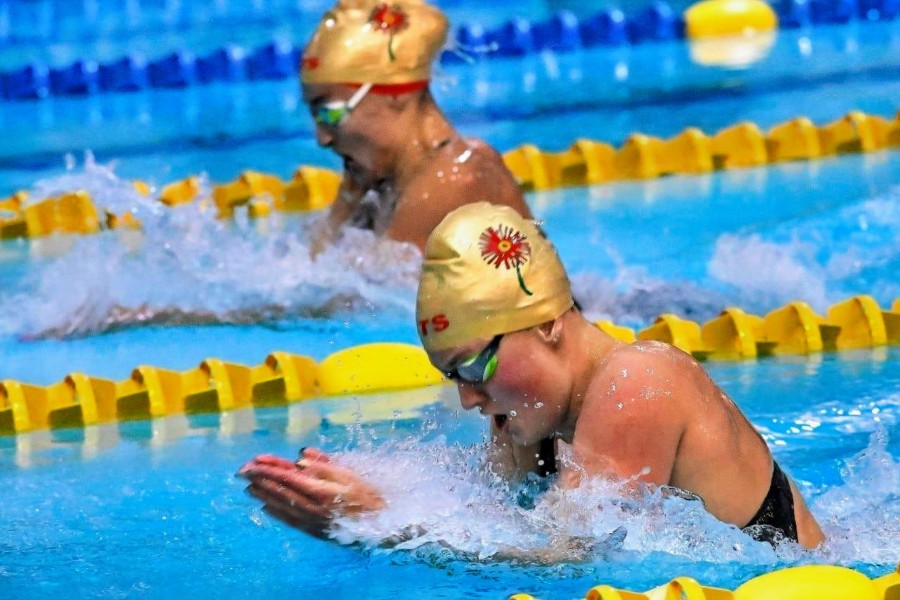
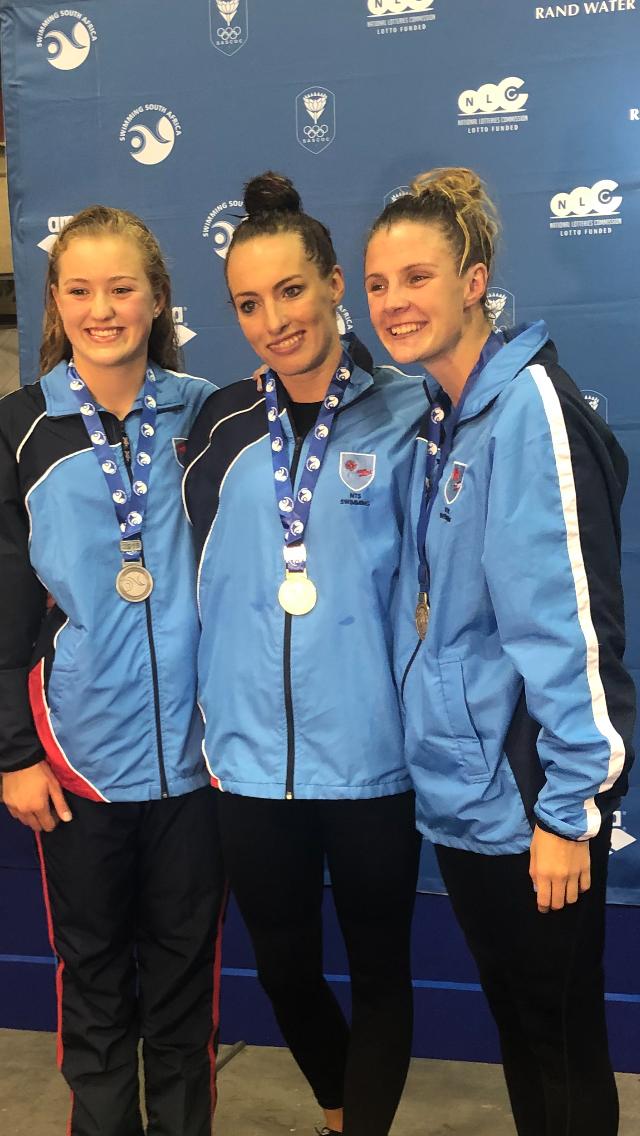
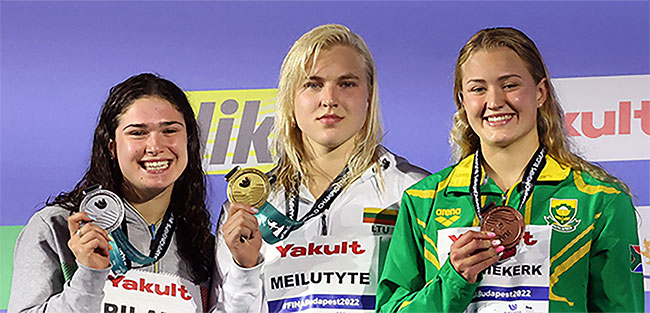
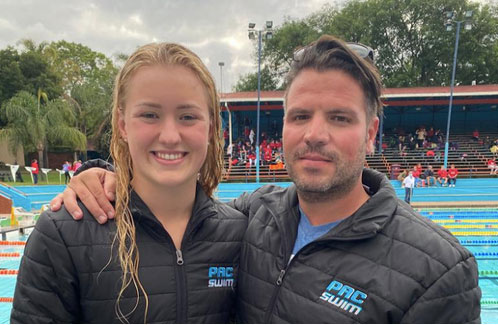
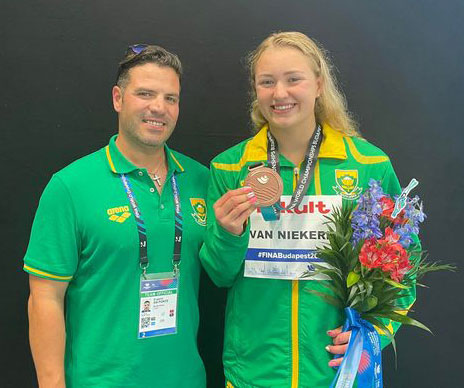





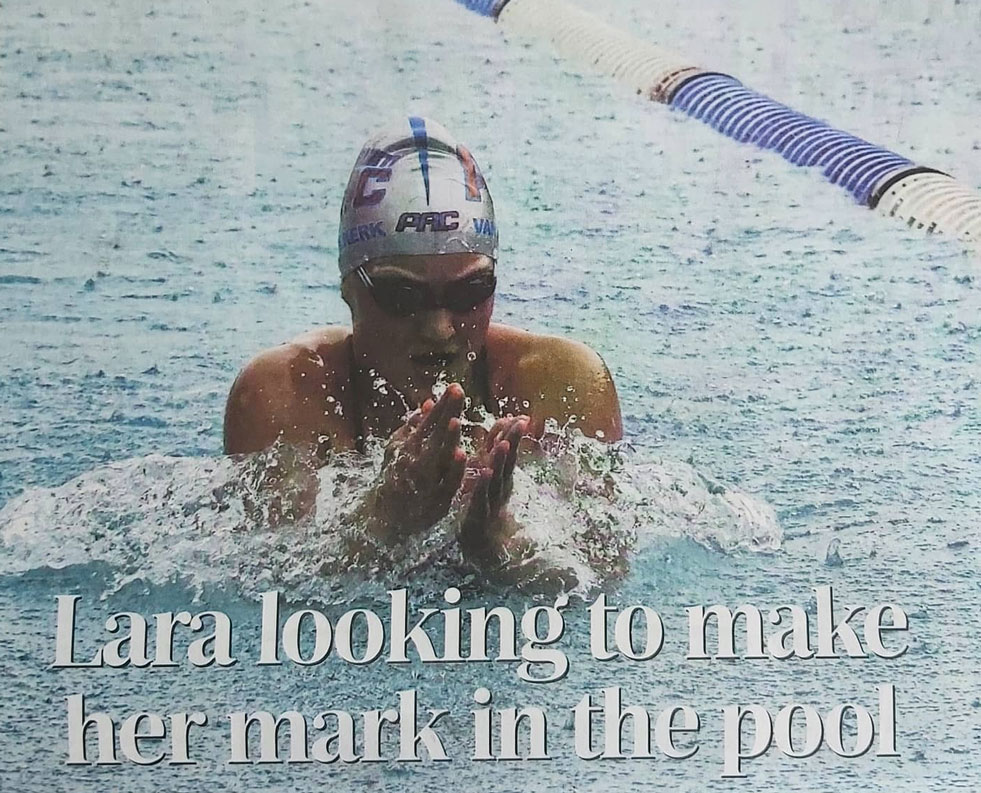
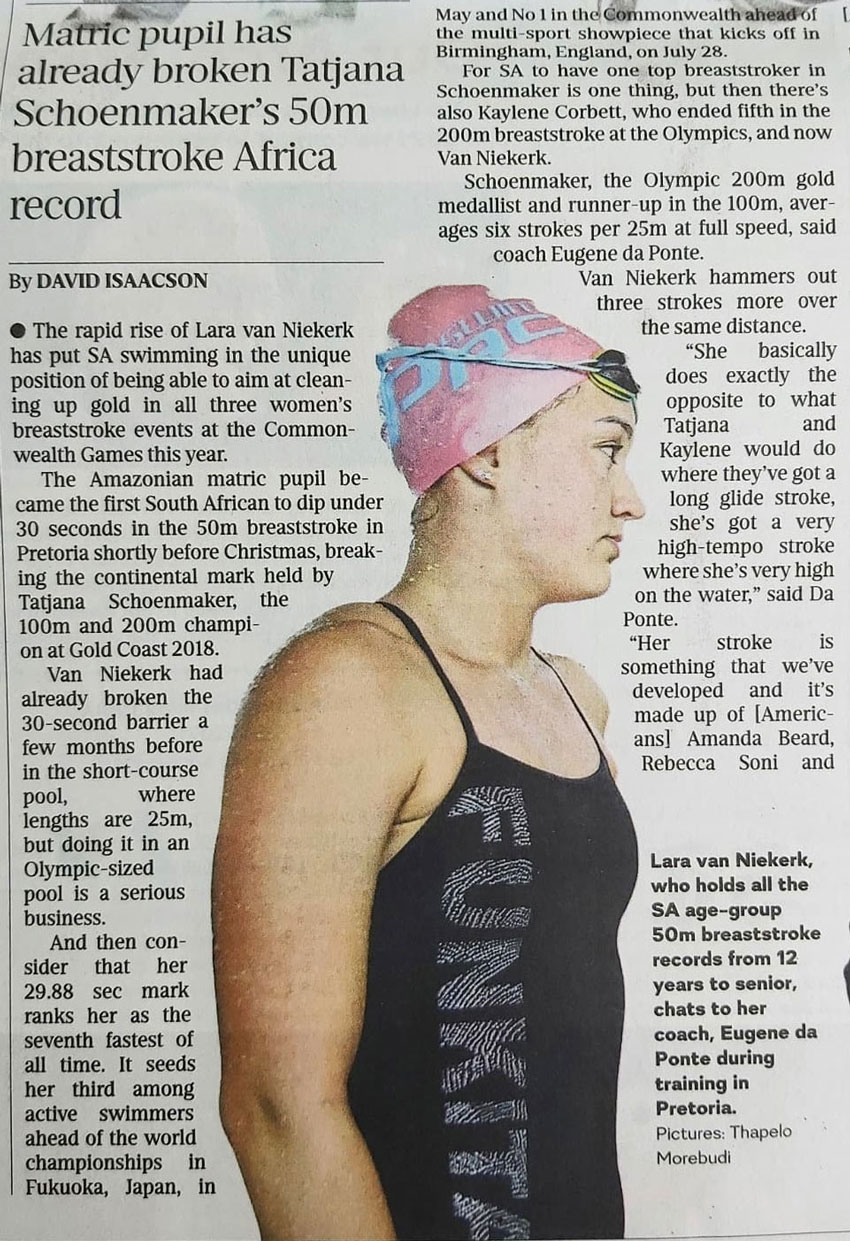
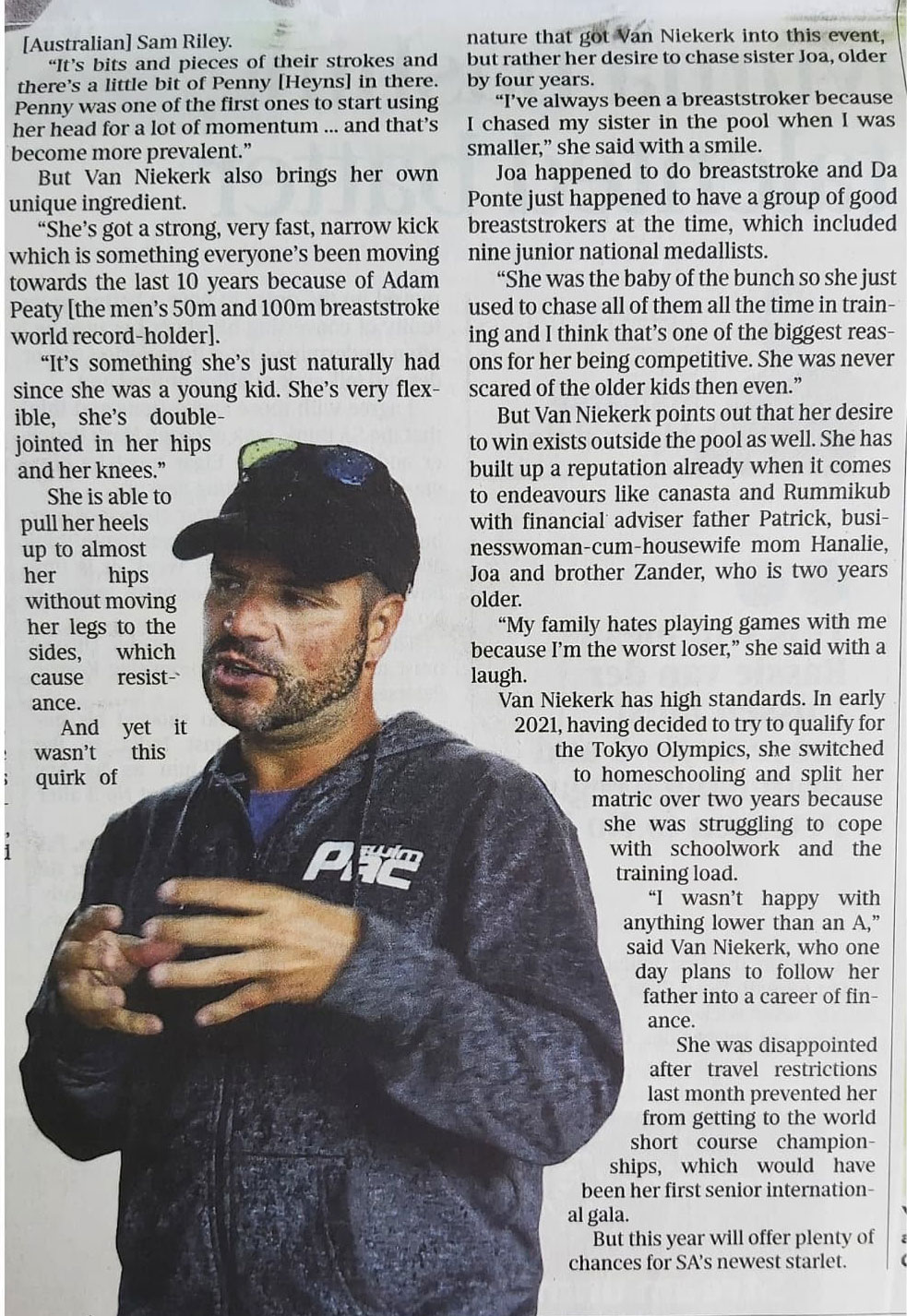
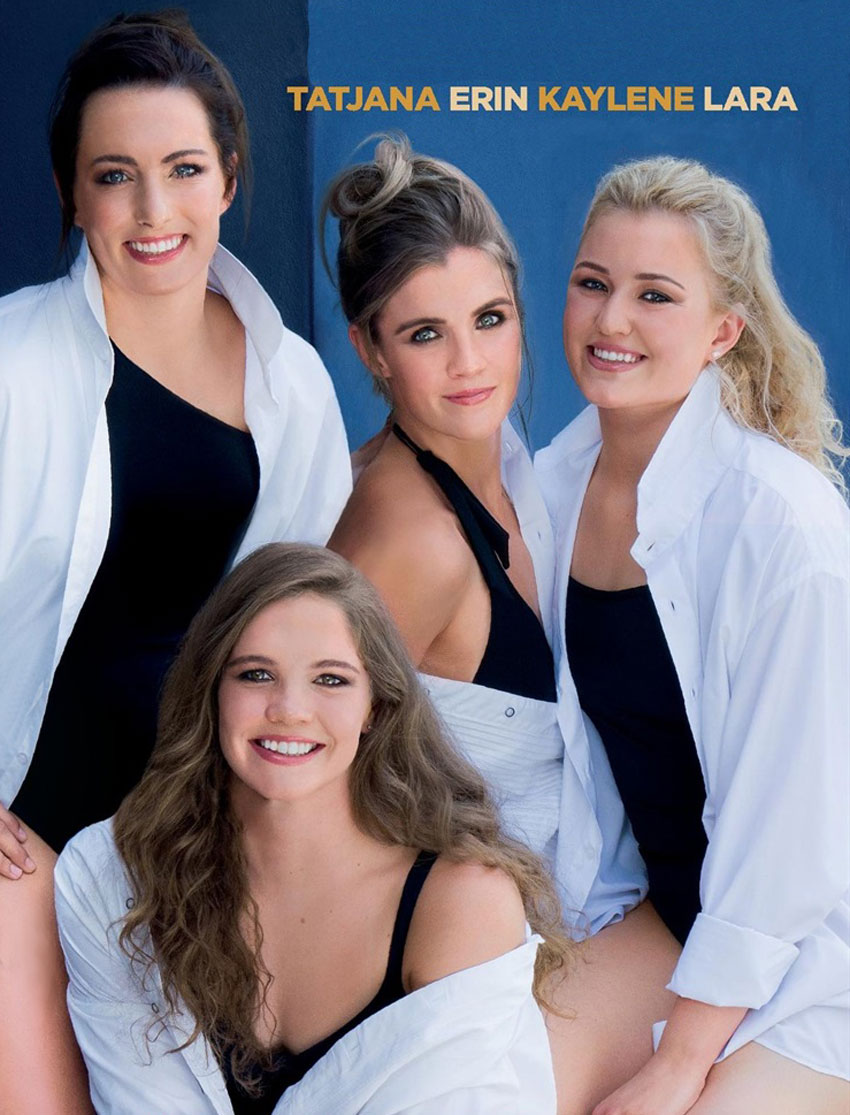
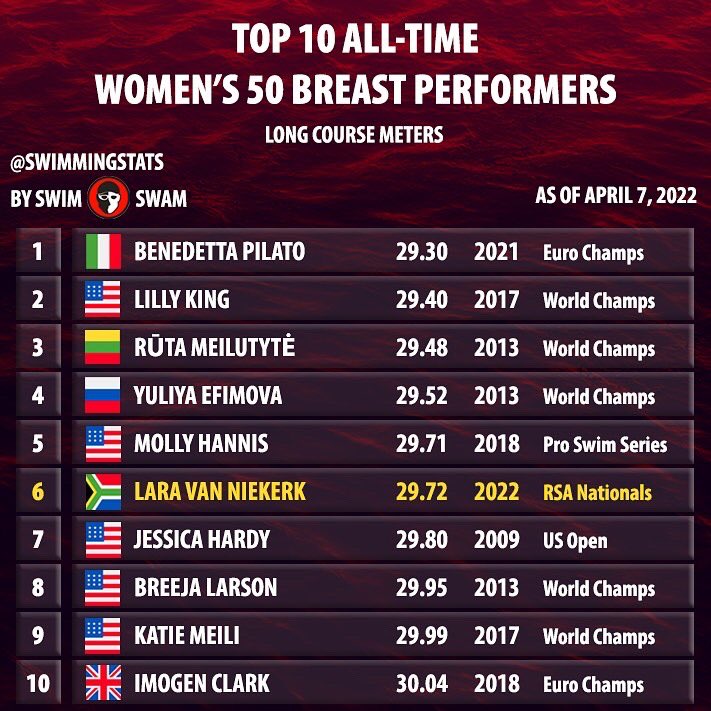
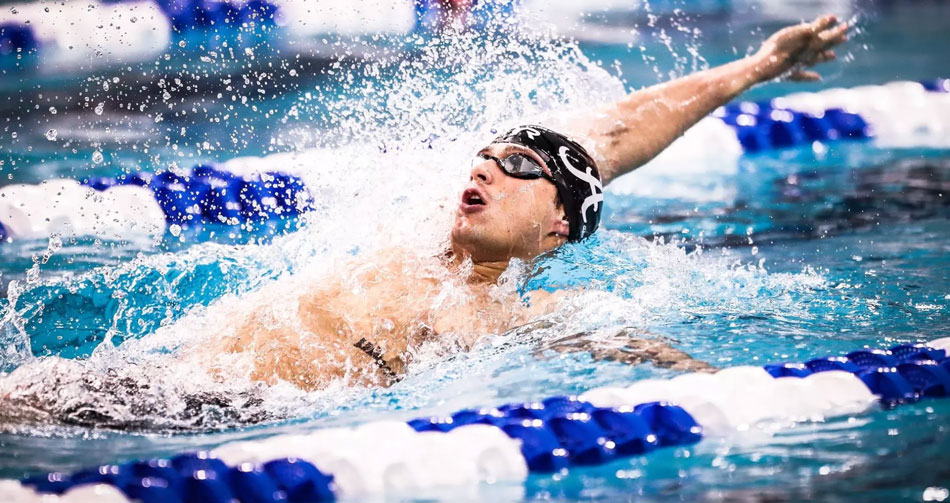
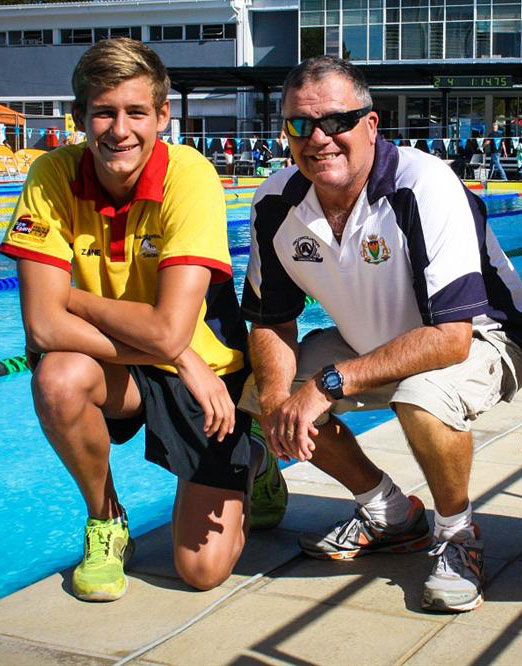

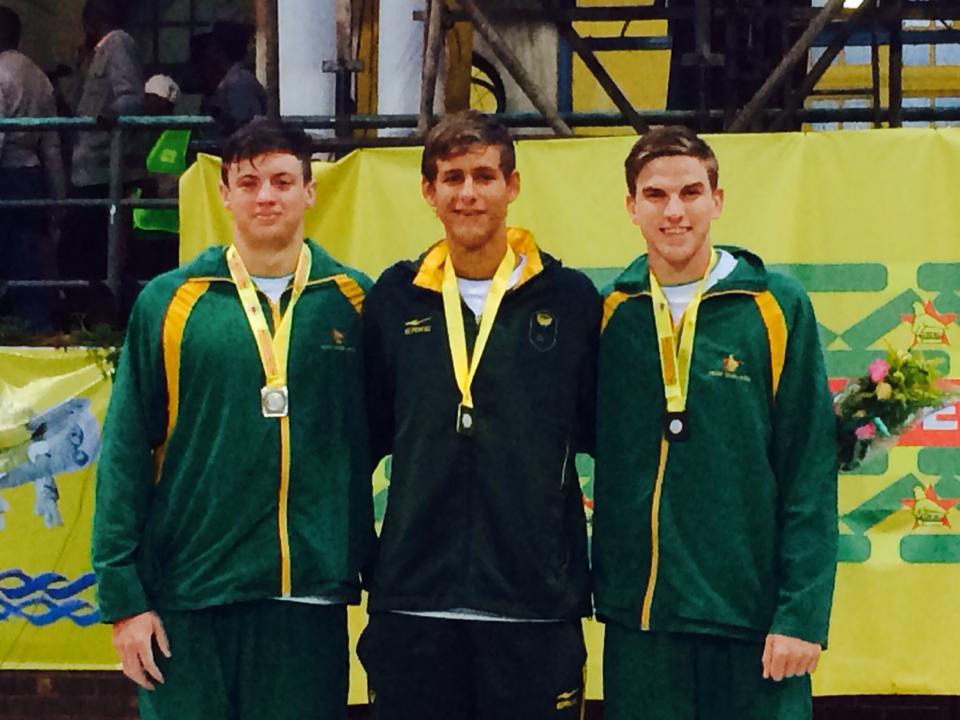

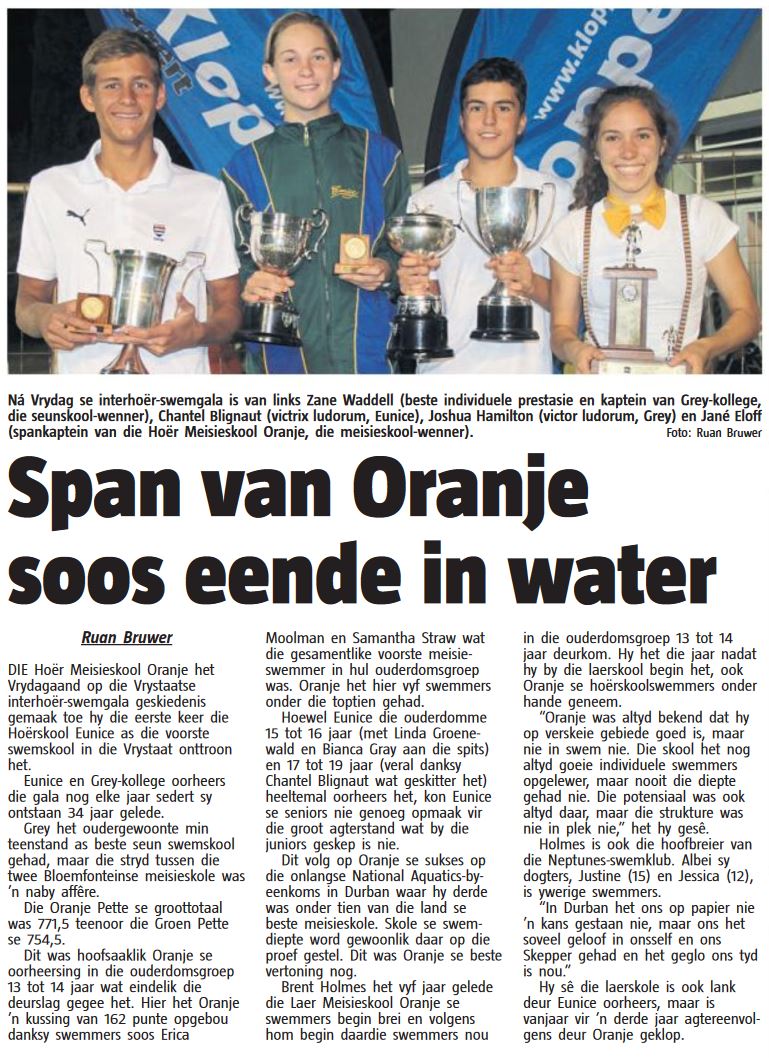



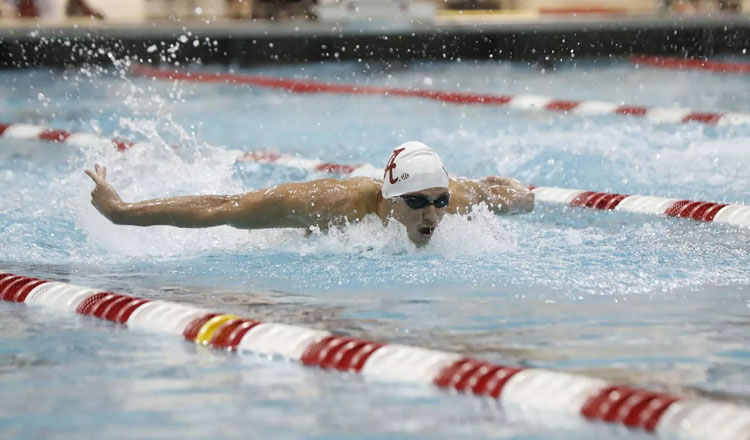
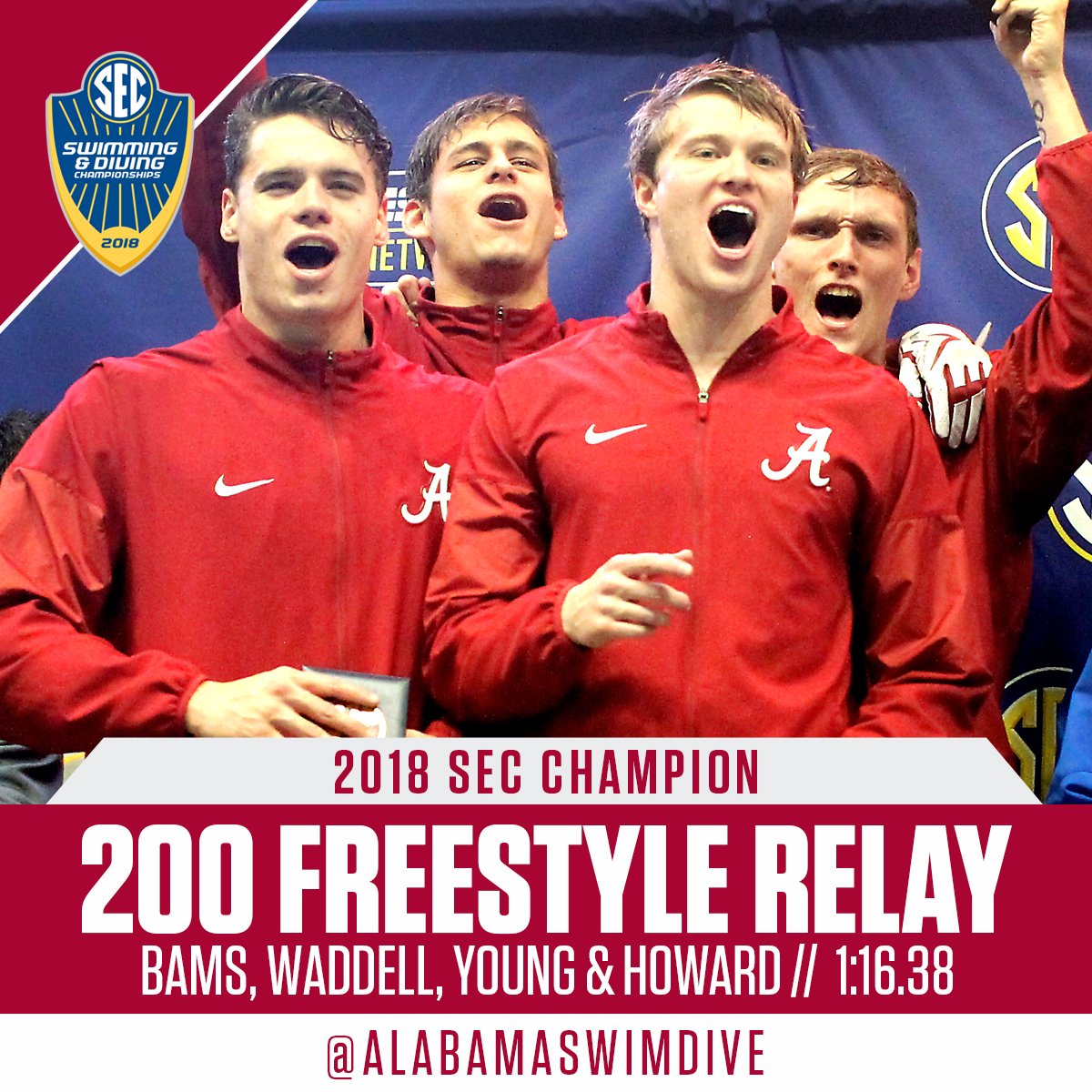
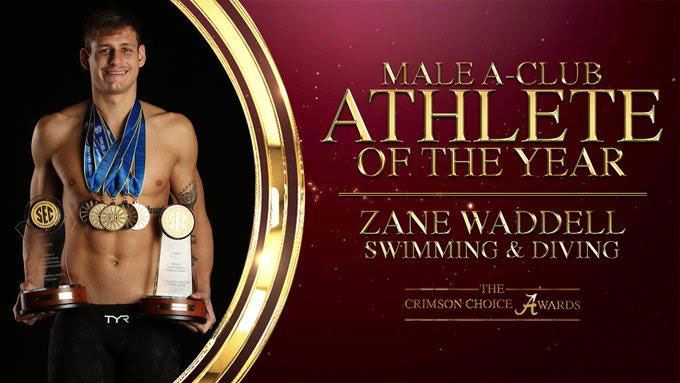
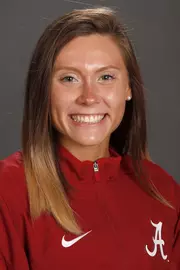
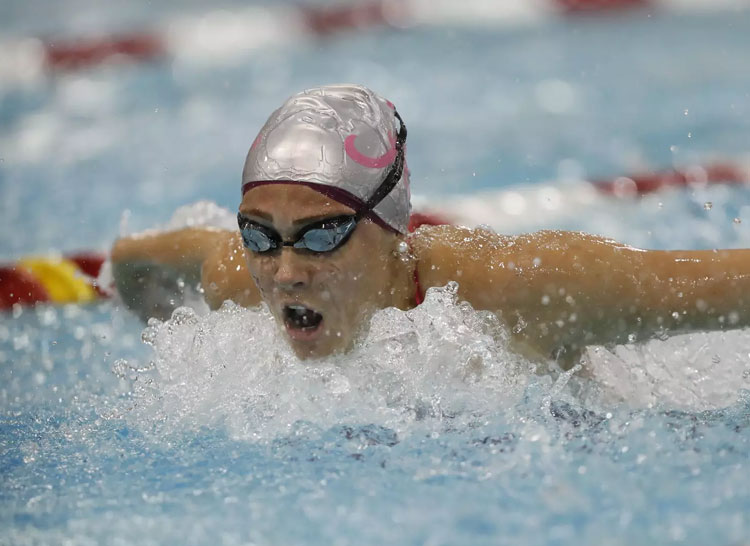
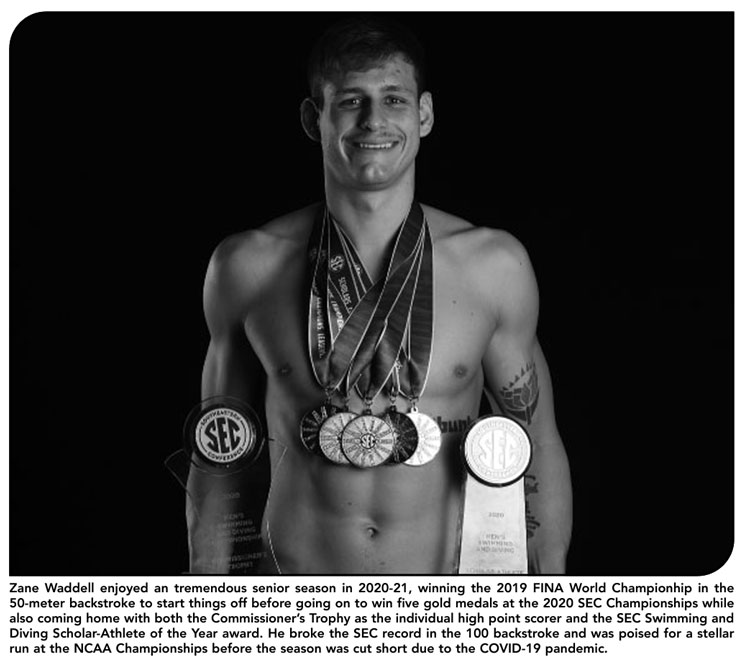
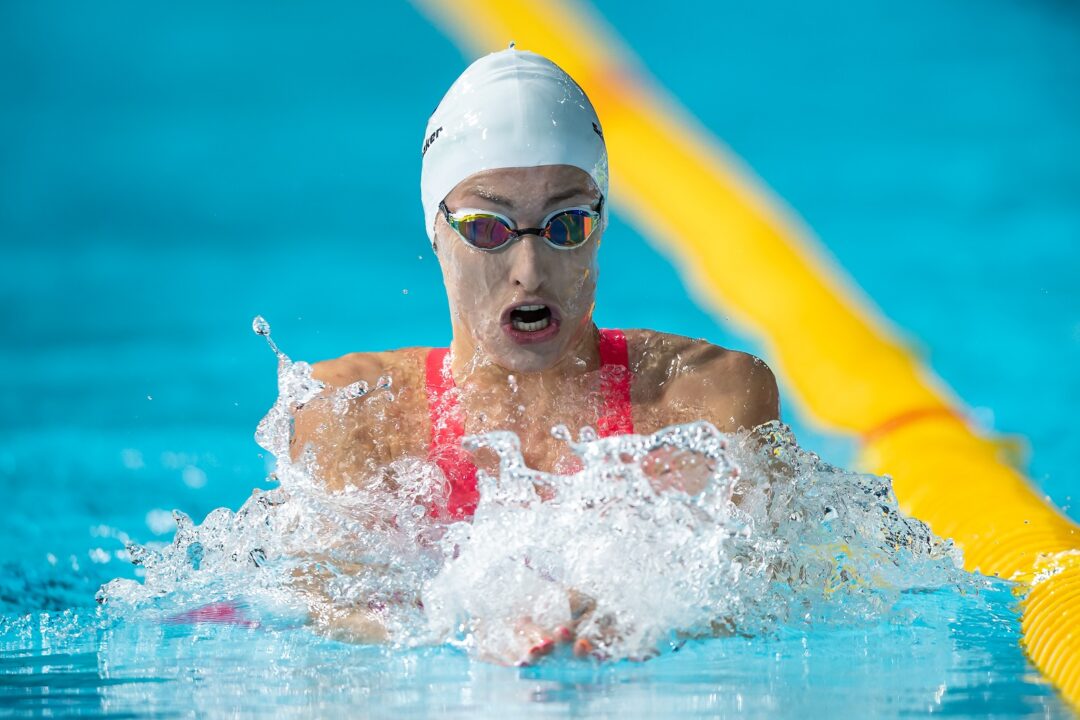

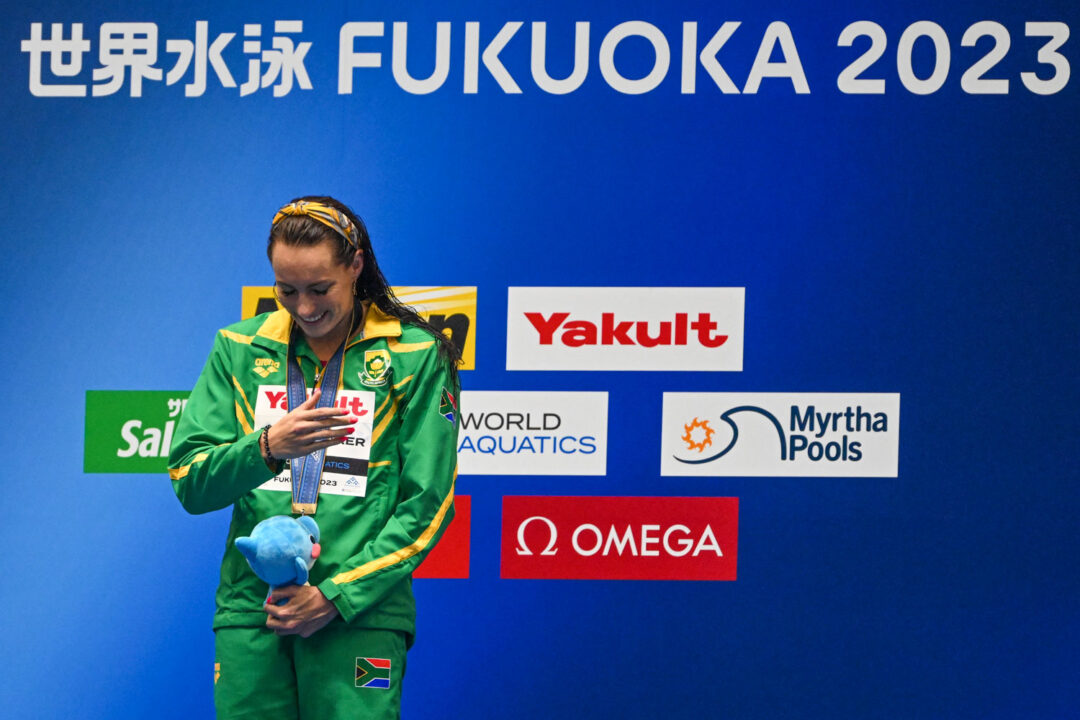
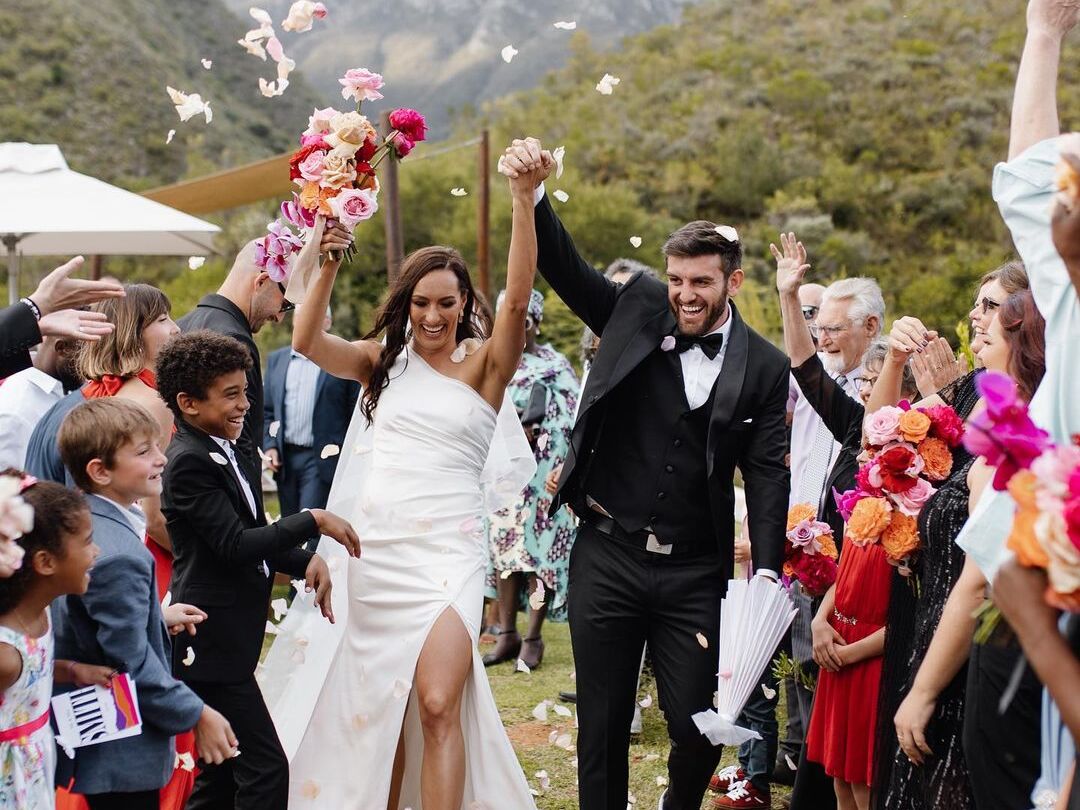
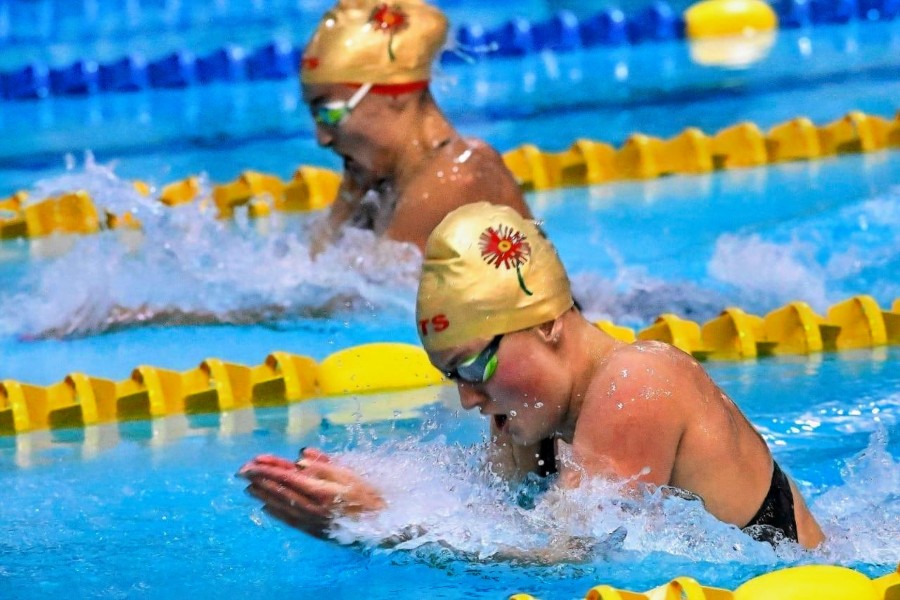

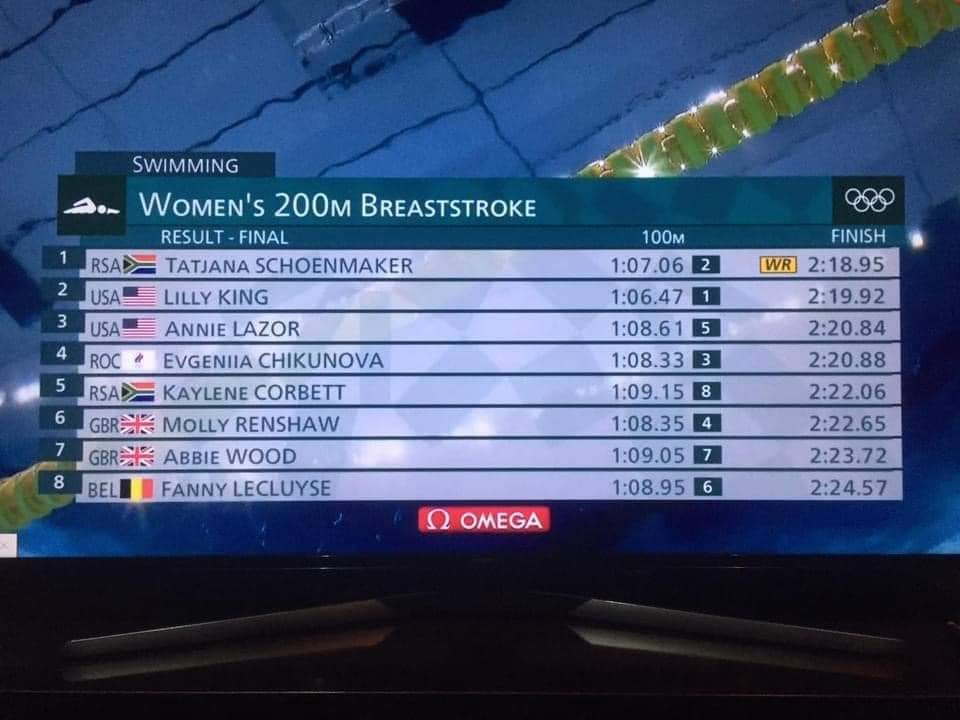
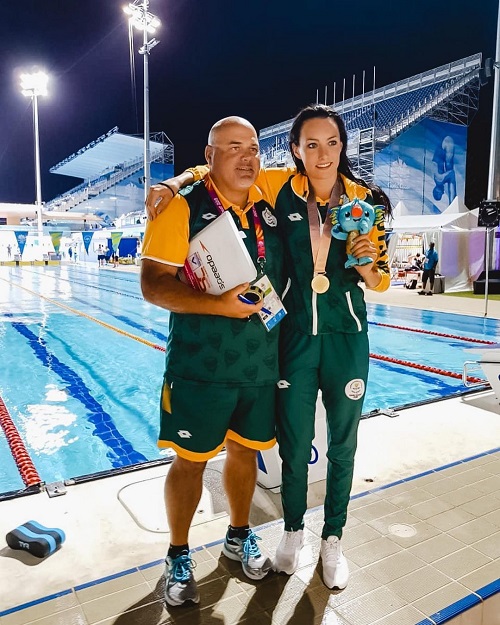
 2020 Regional Short-Course Championships - Pretoria
2020 Regional Short-Course Championships - Pretoria

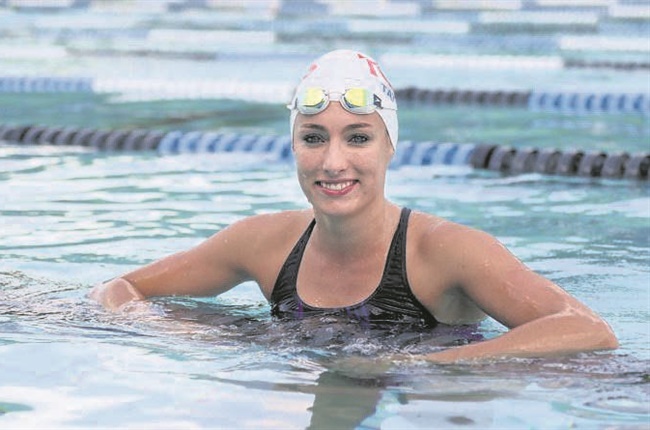


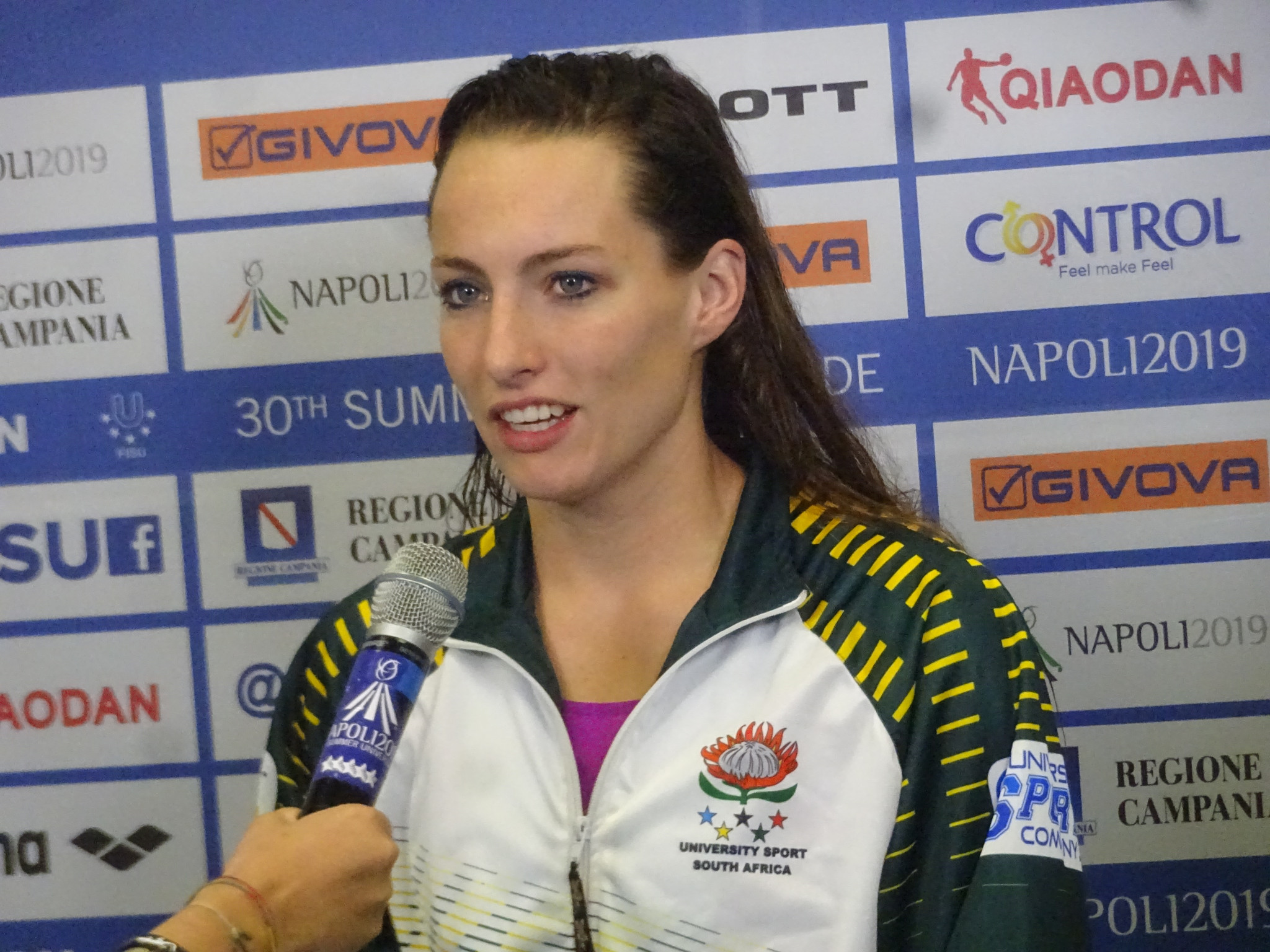
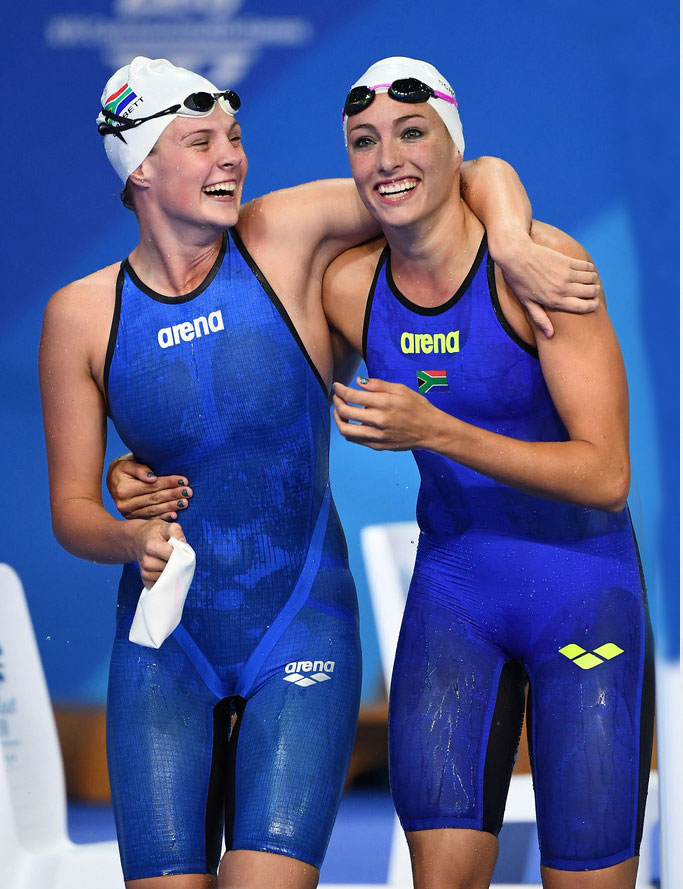

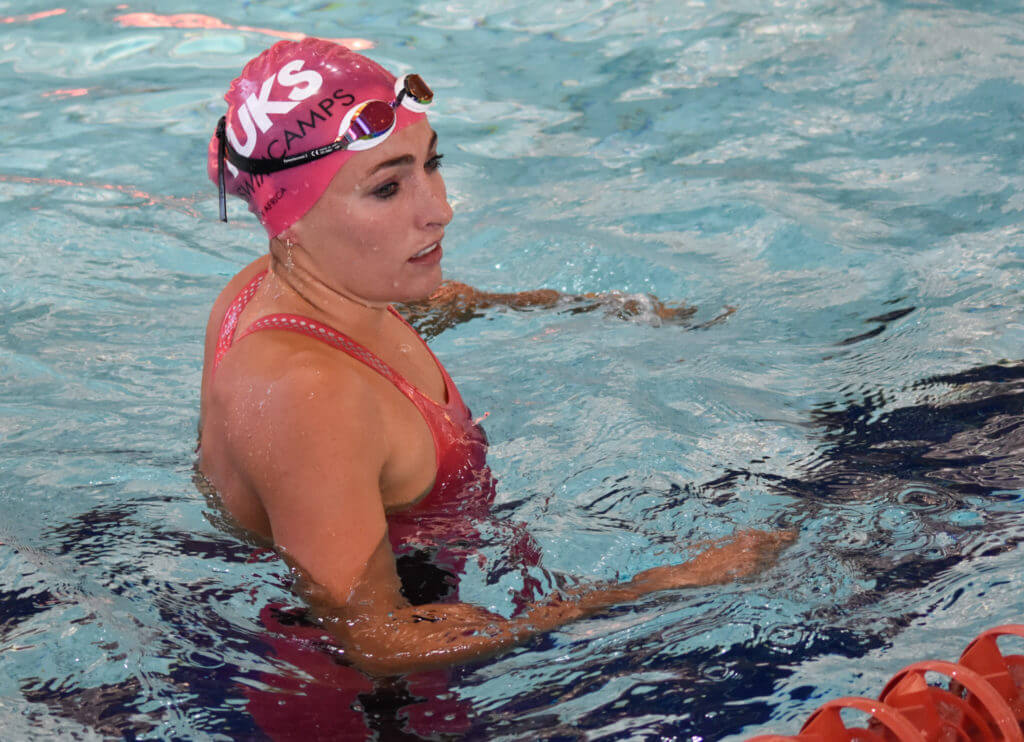
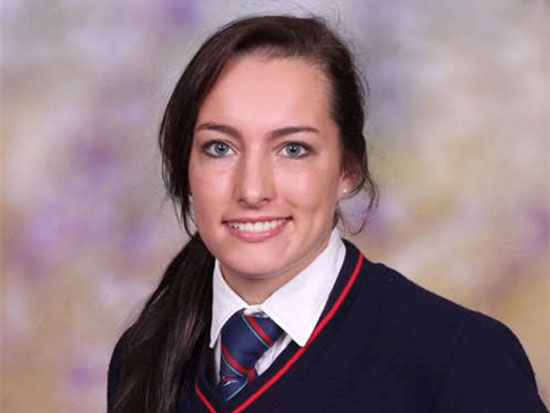
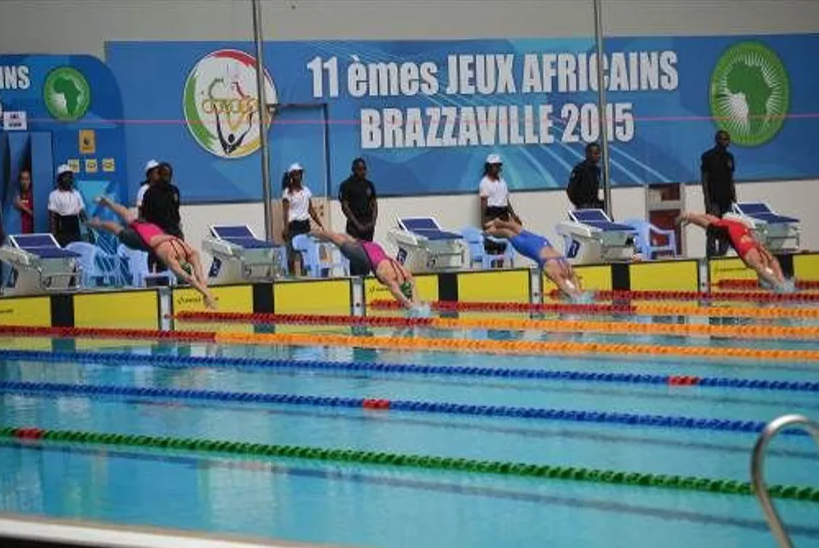
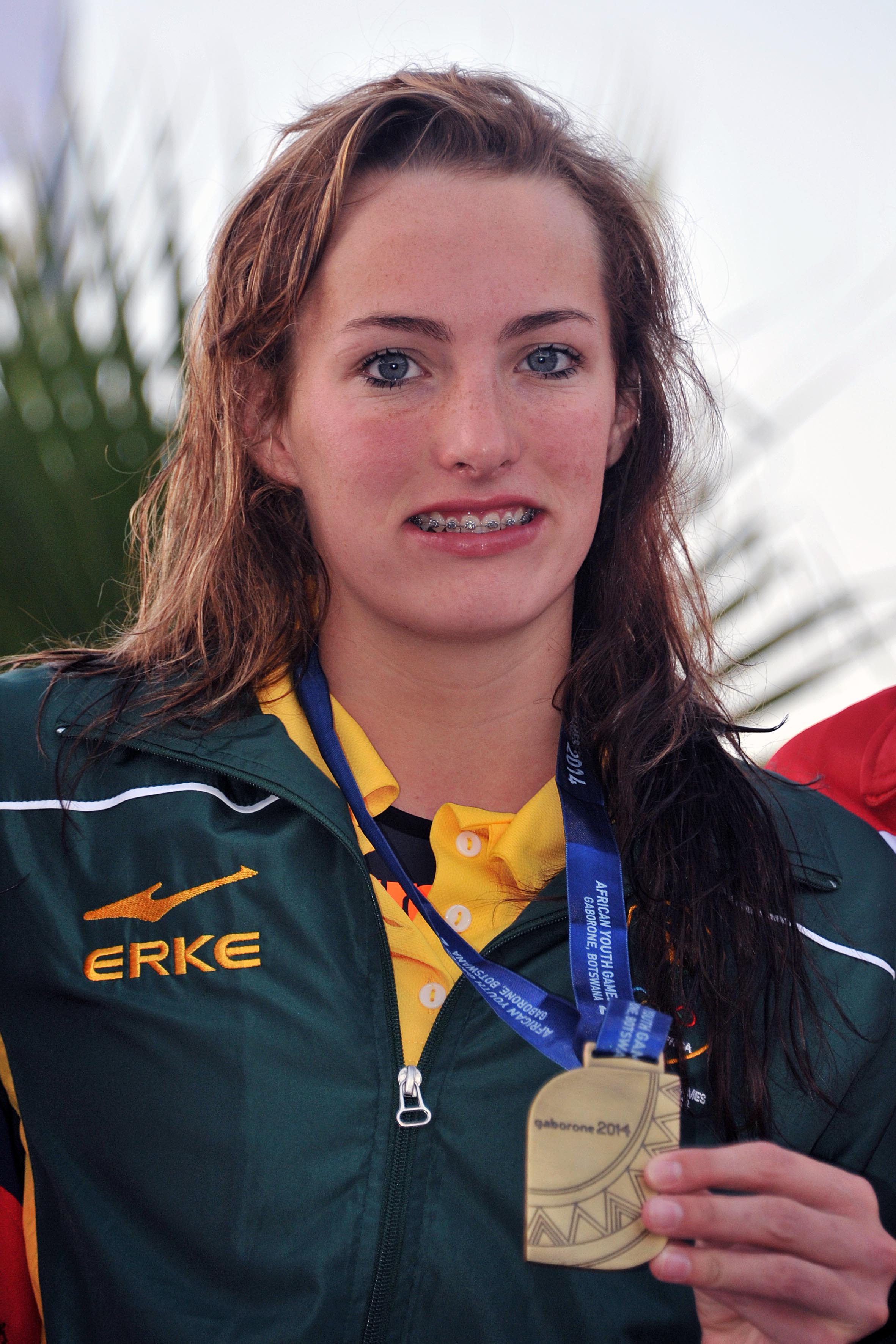
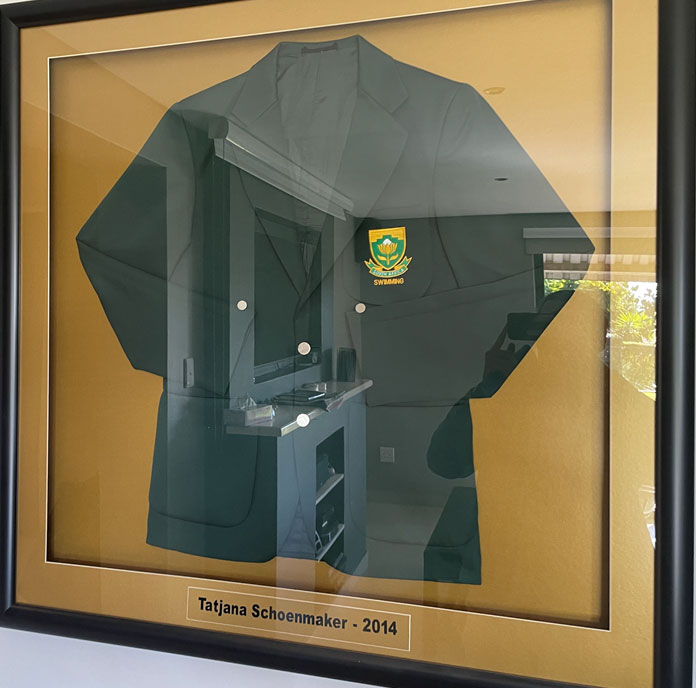
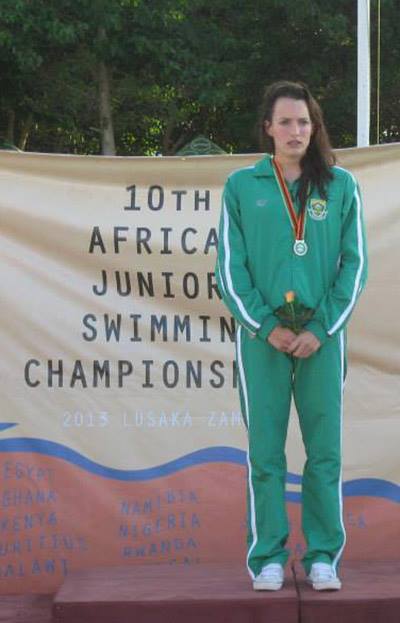
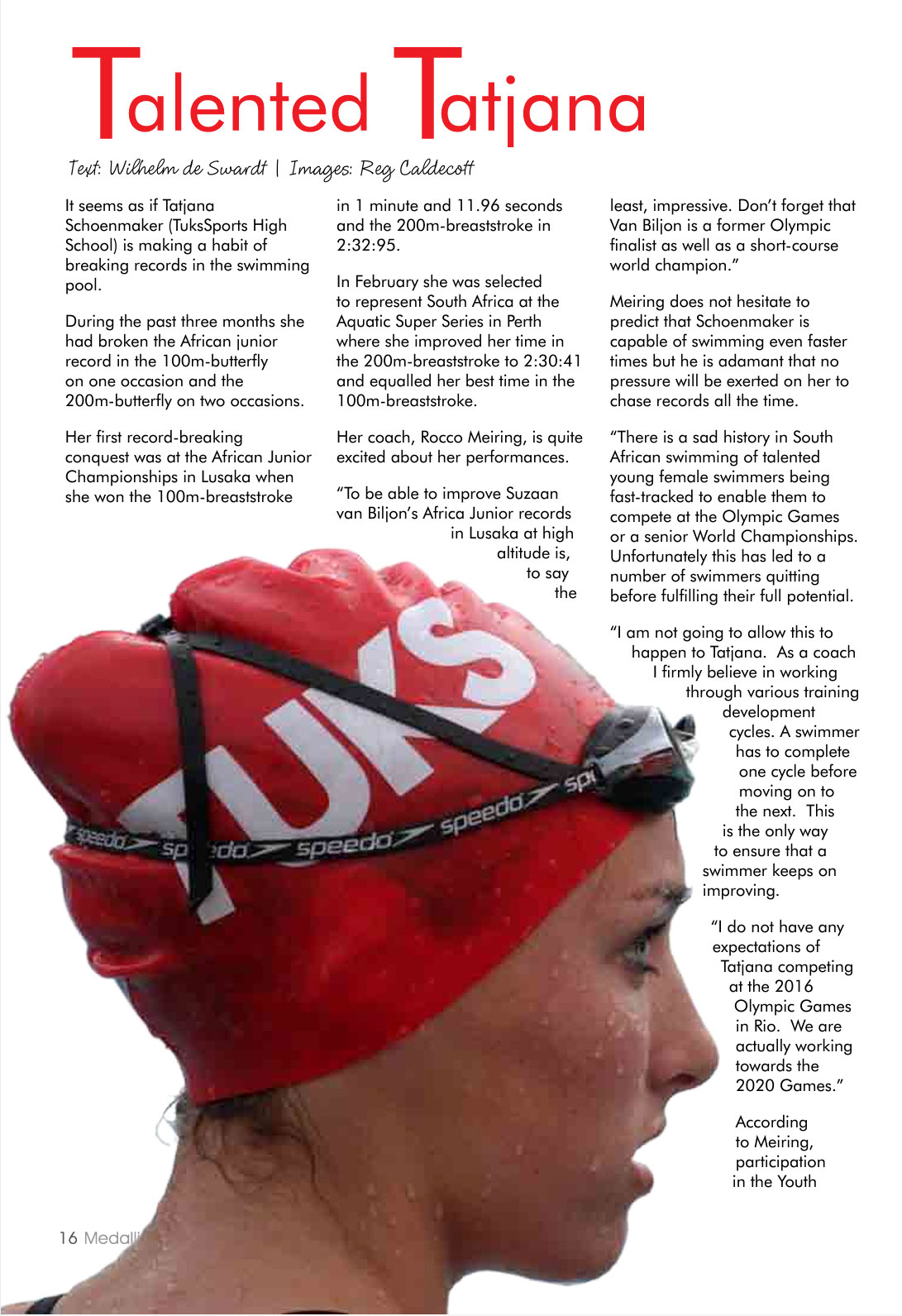
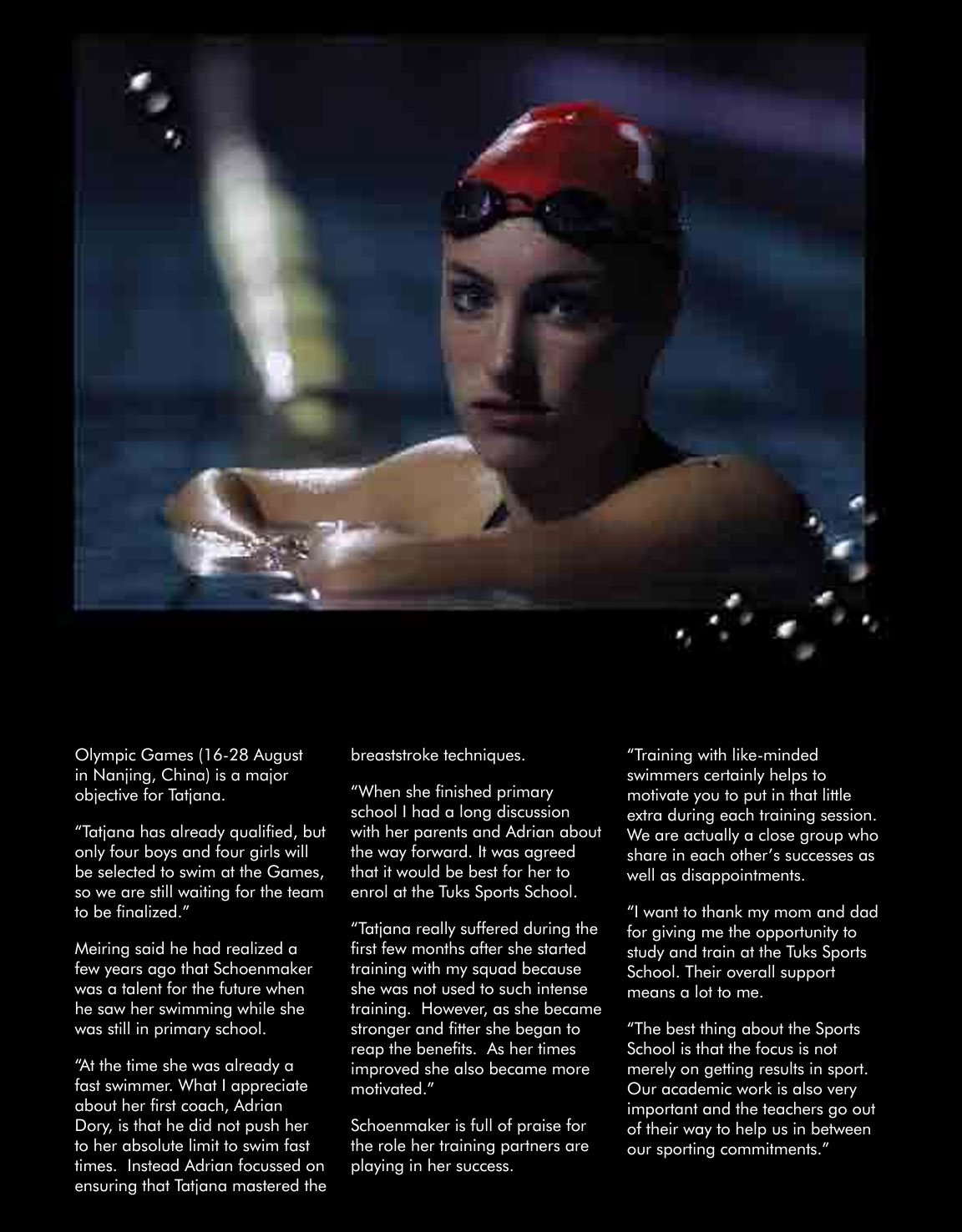







 2020 Regional Short-Course Championships - Pretoria
2020 Regional Short-Course Championships - Pretoria












